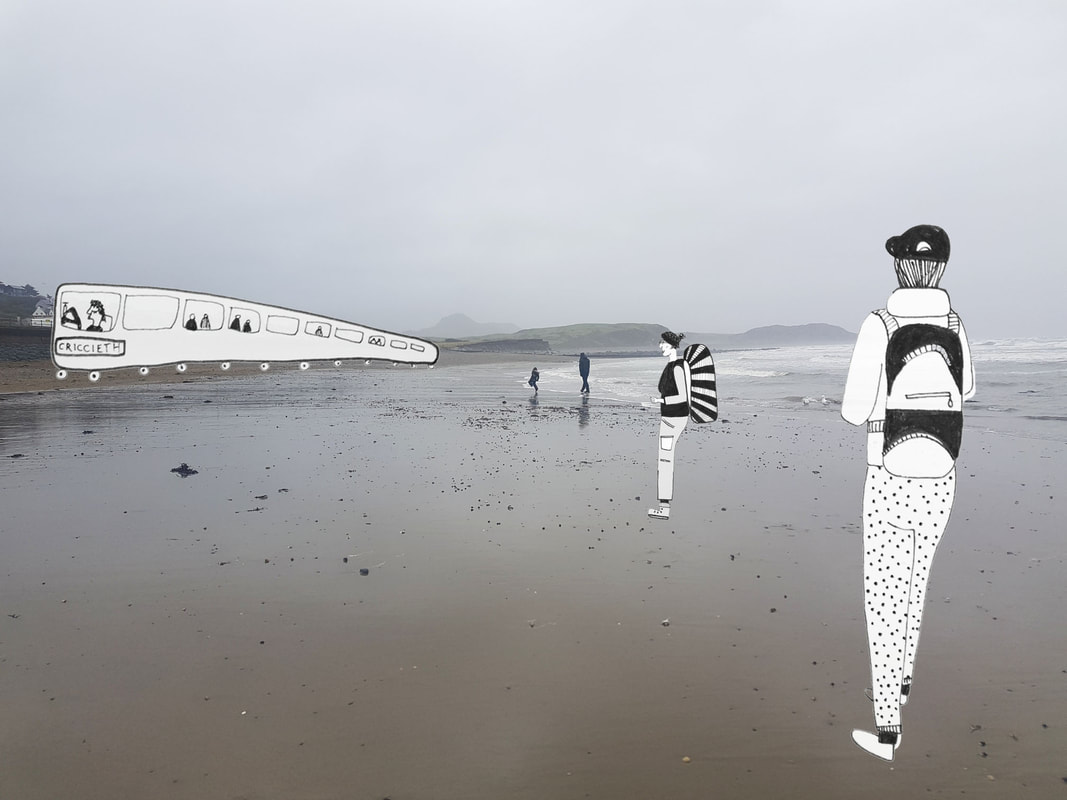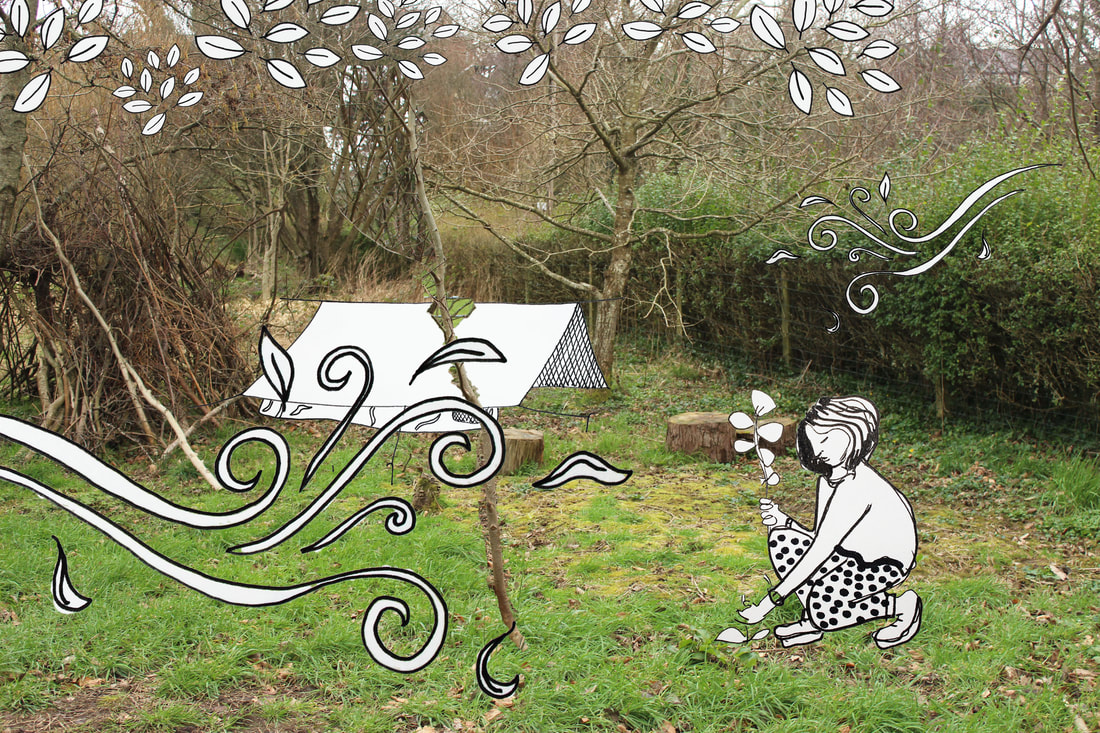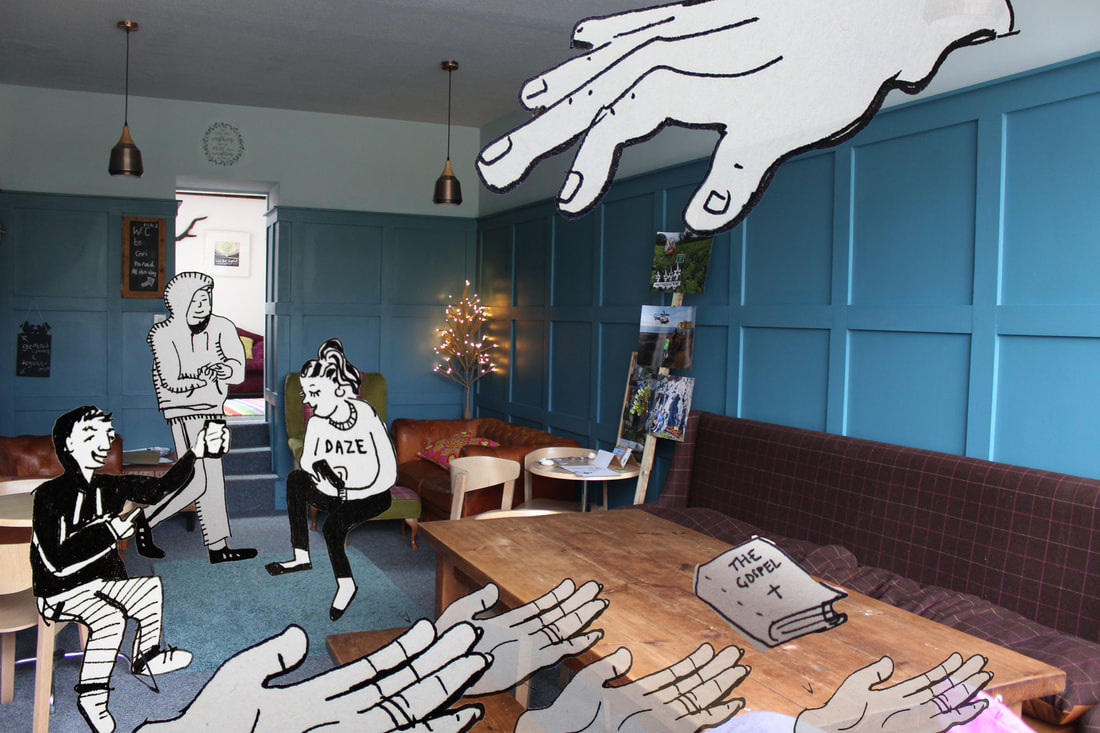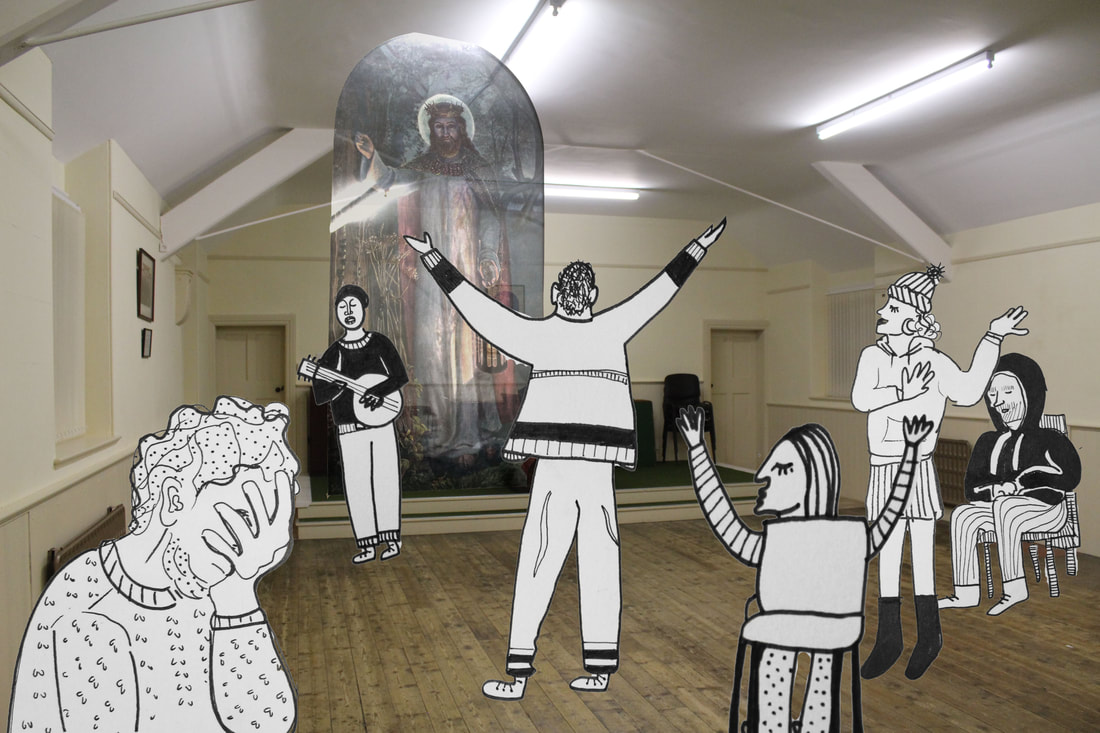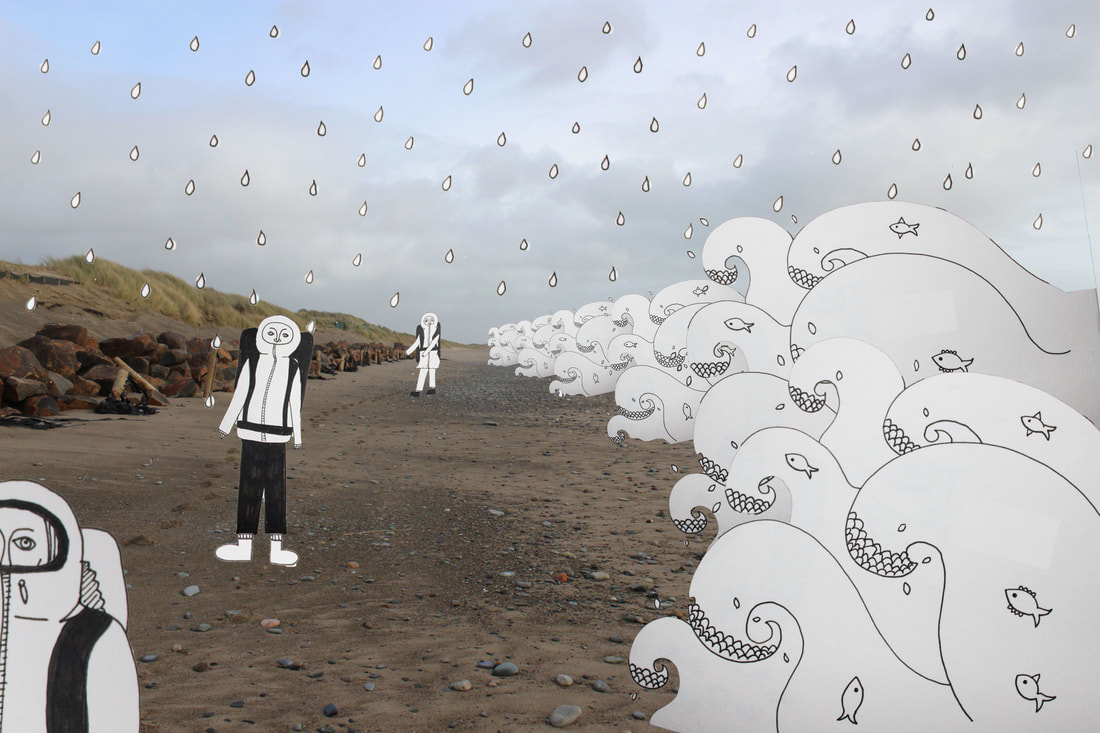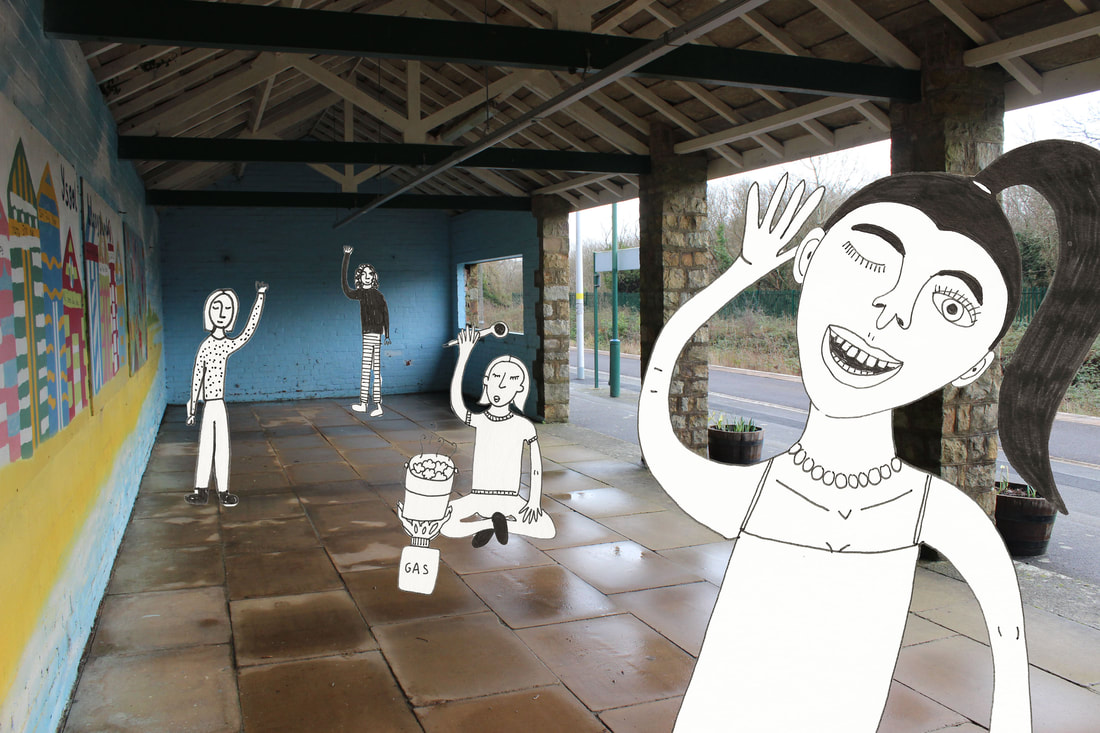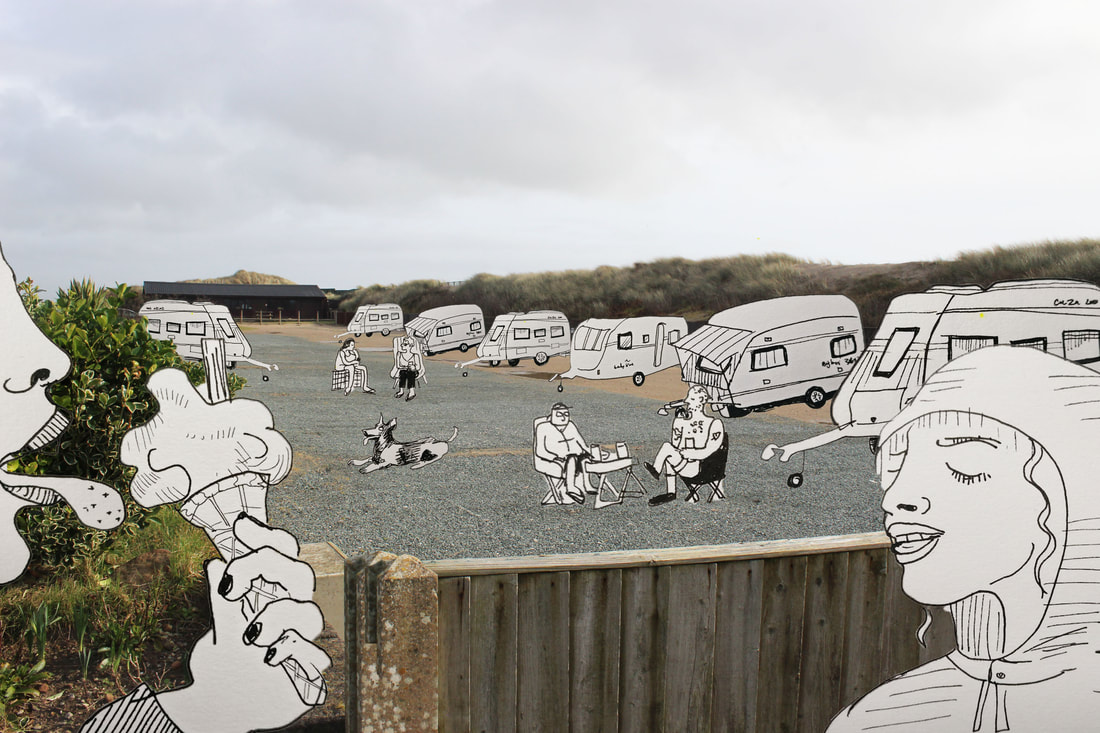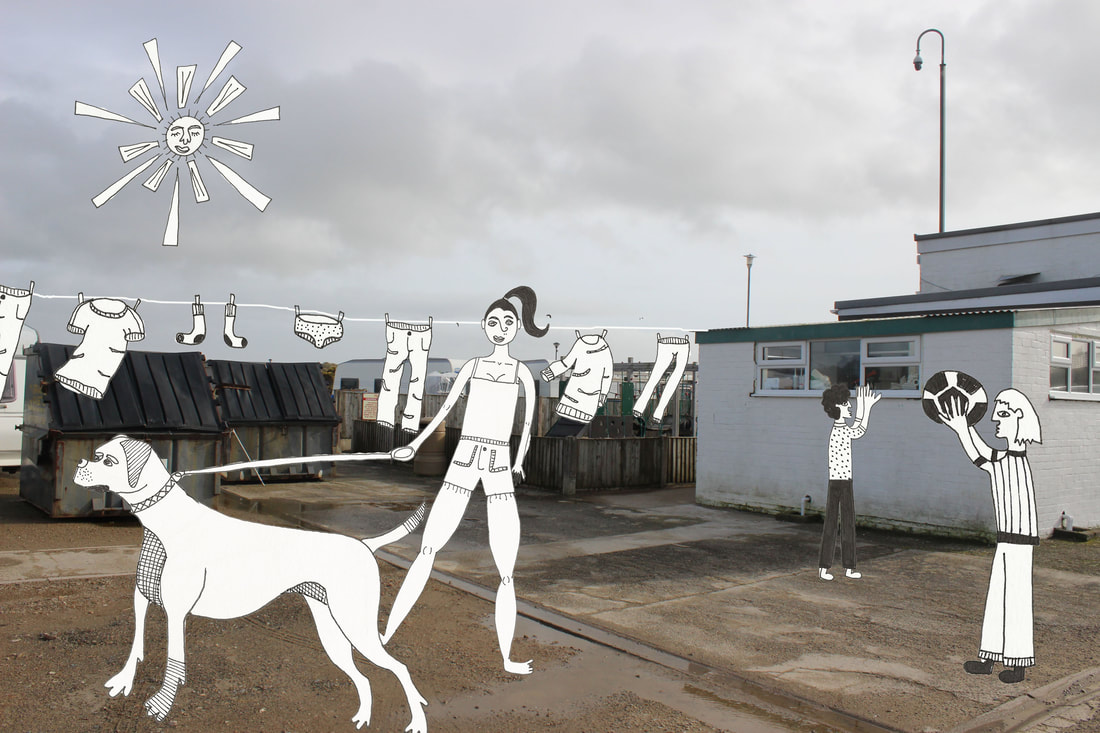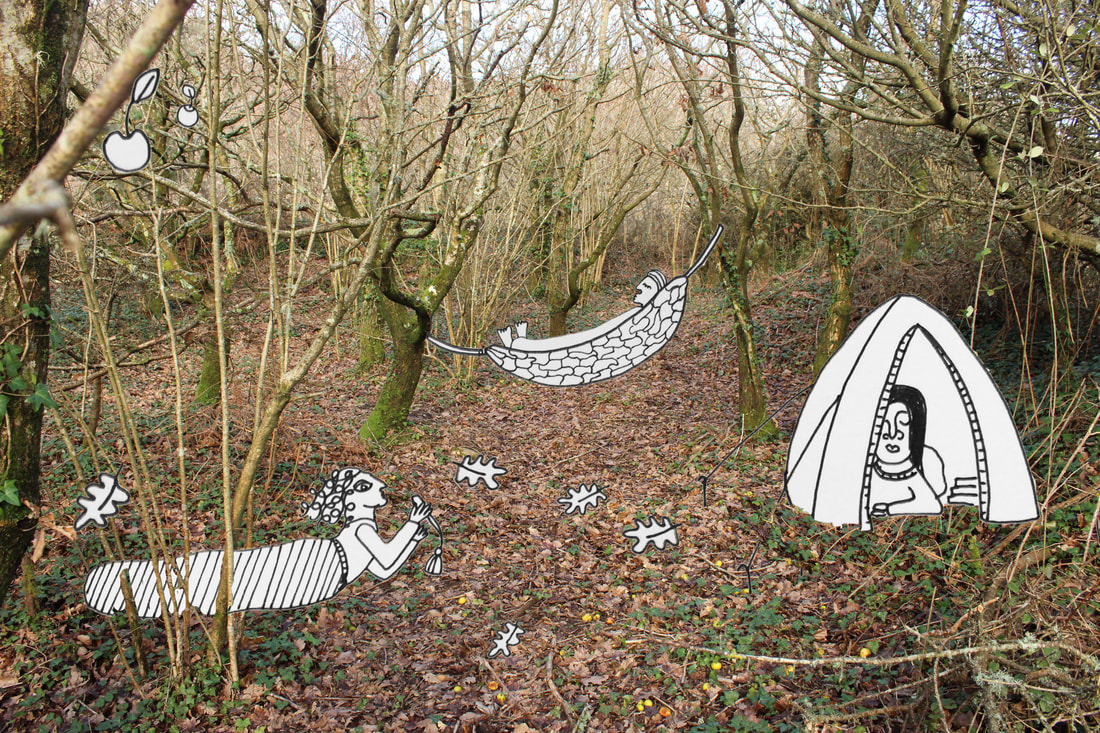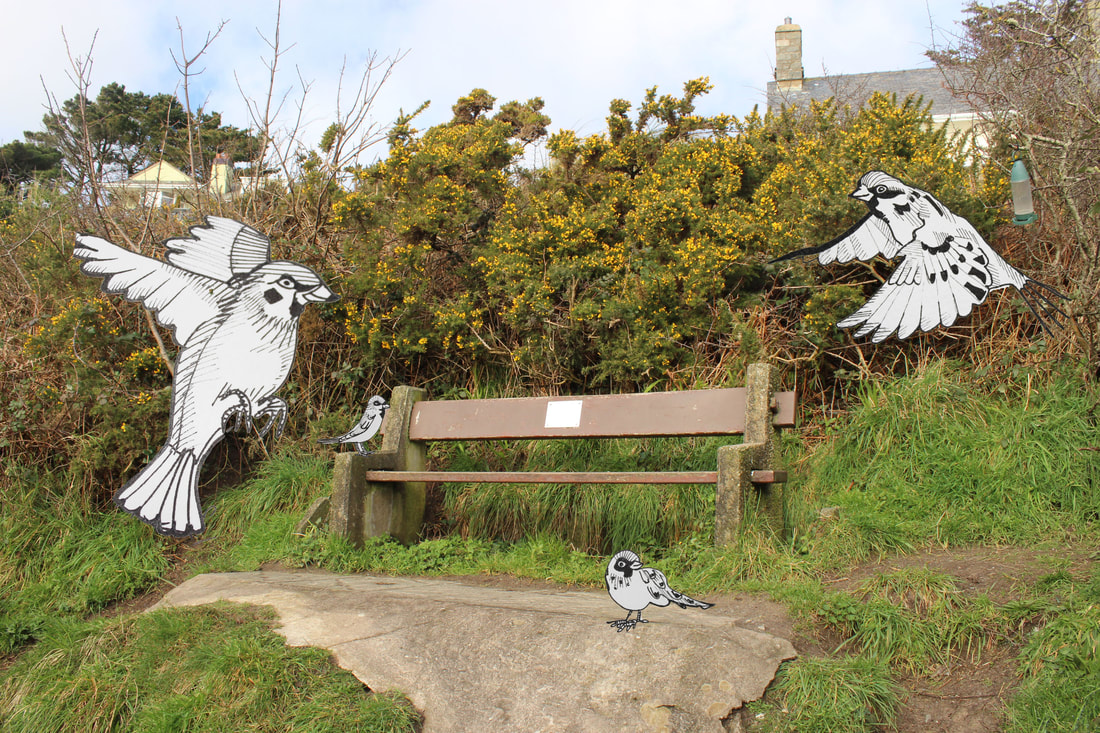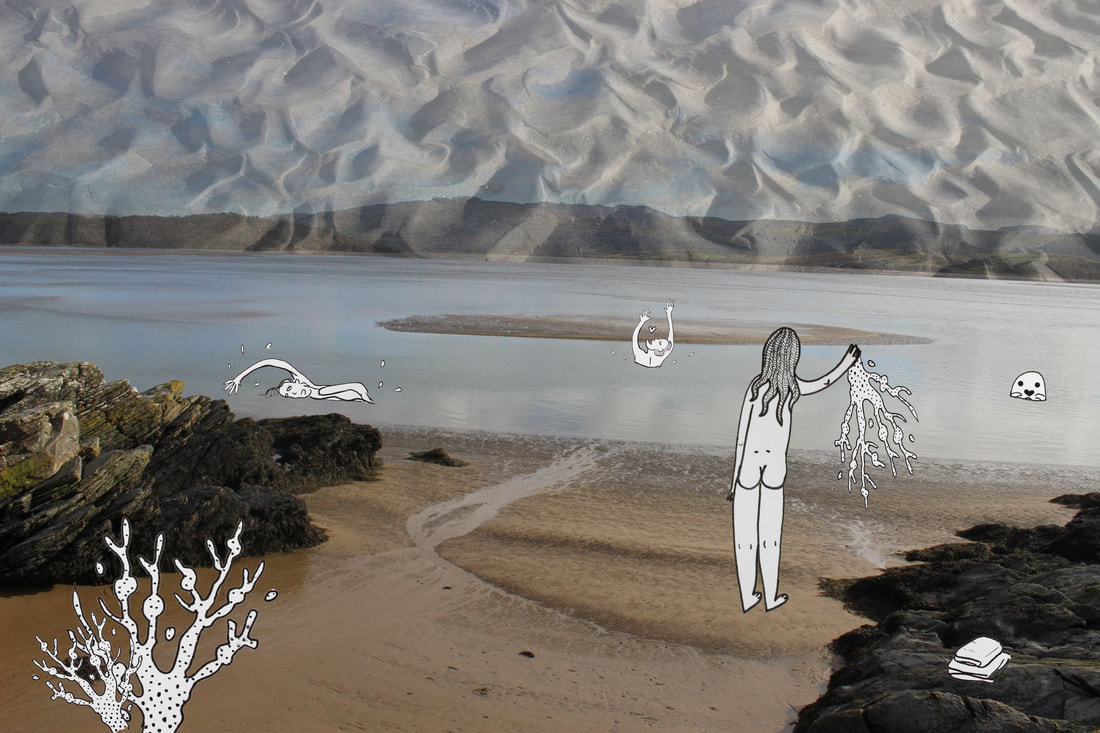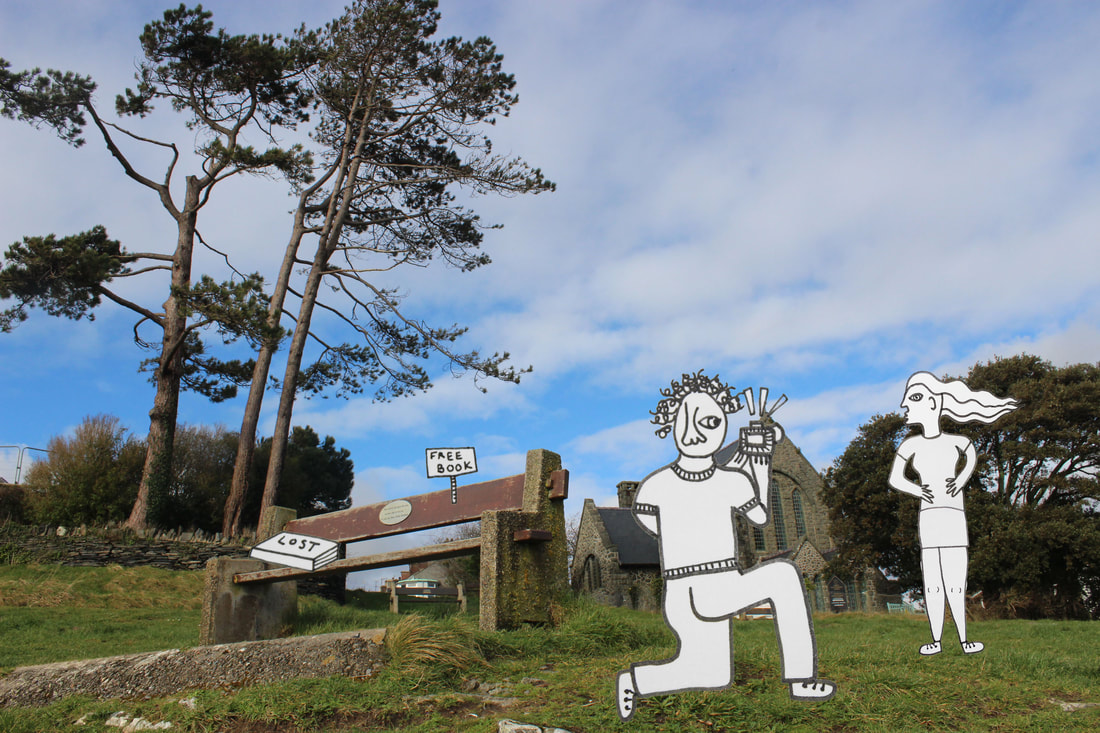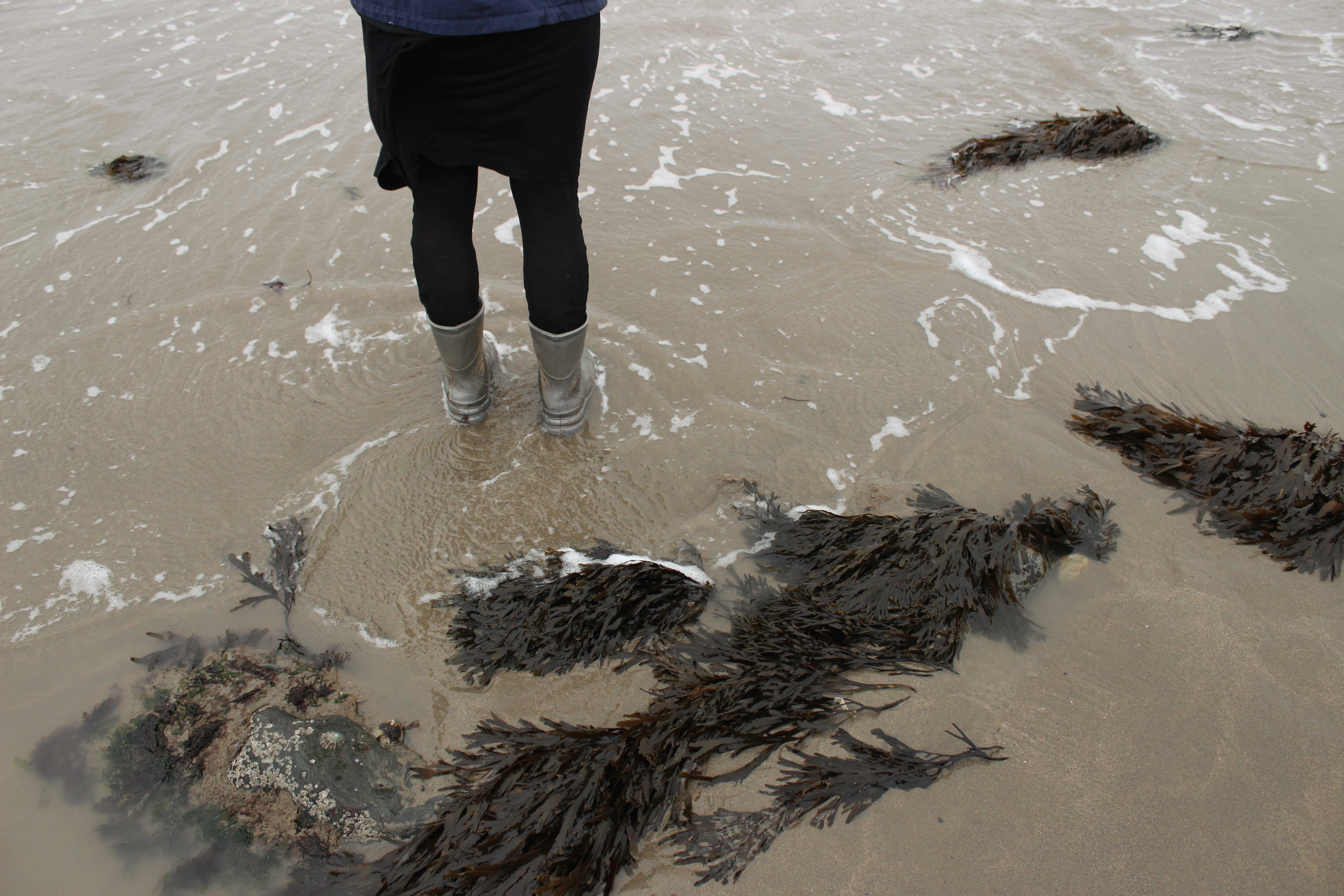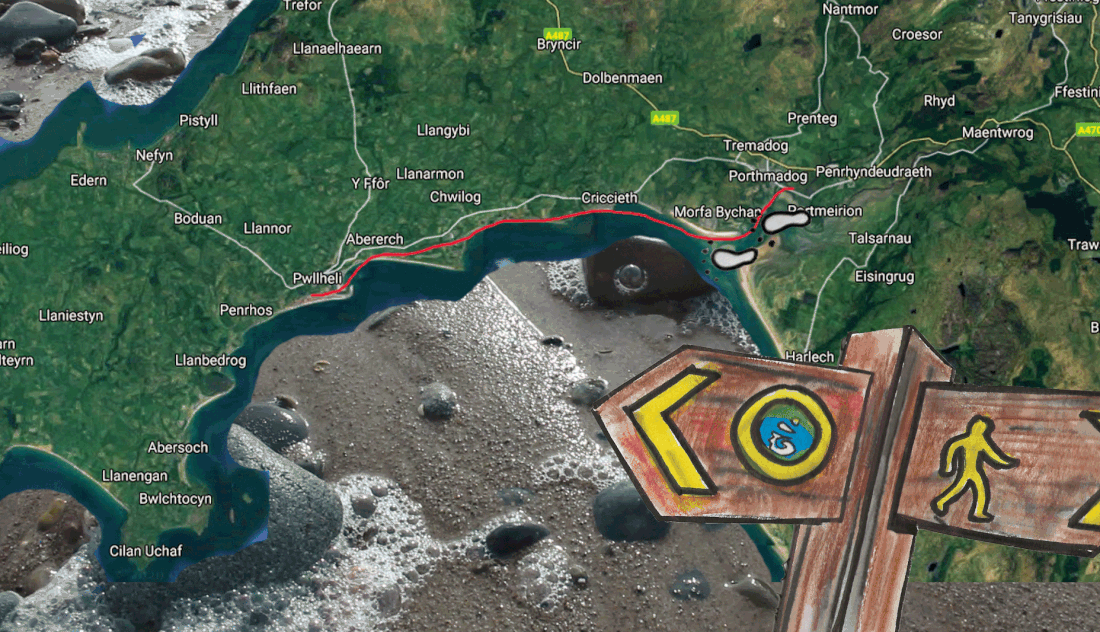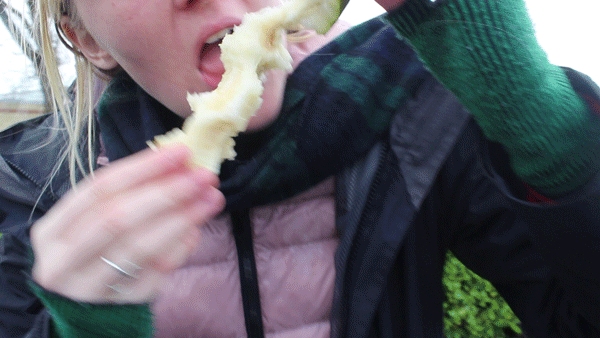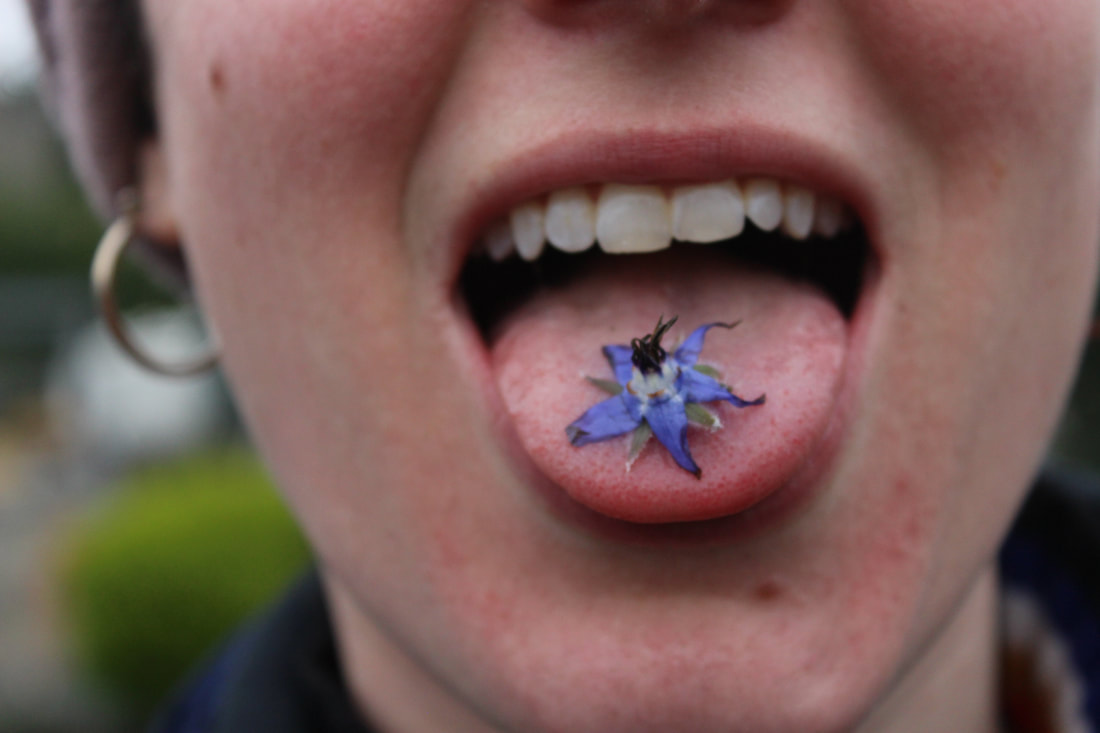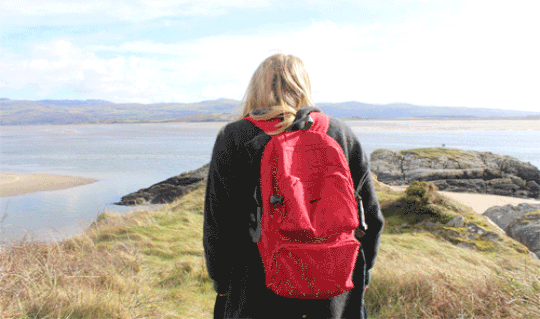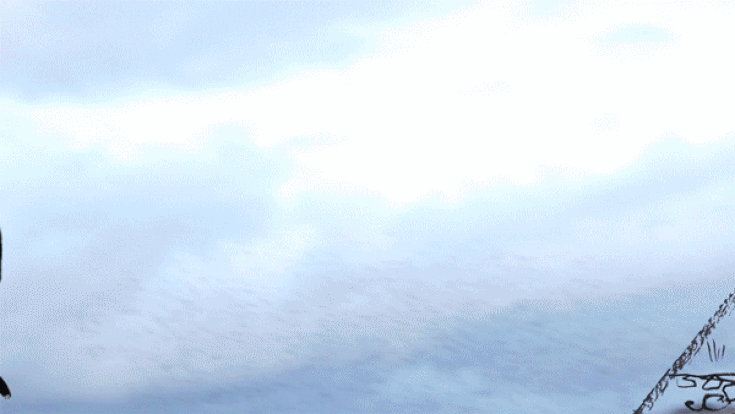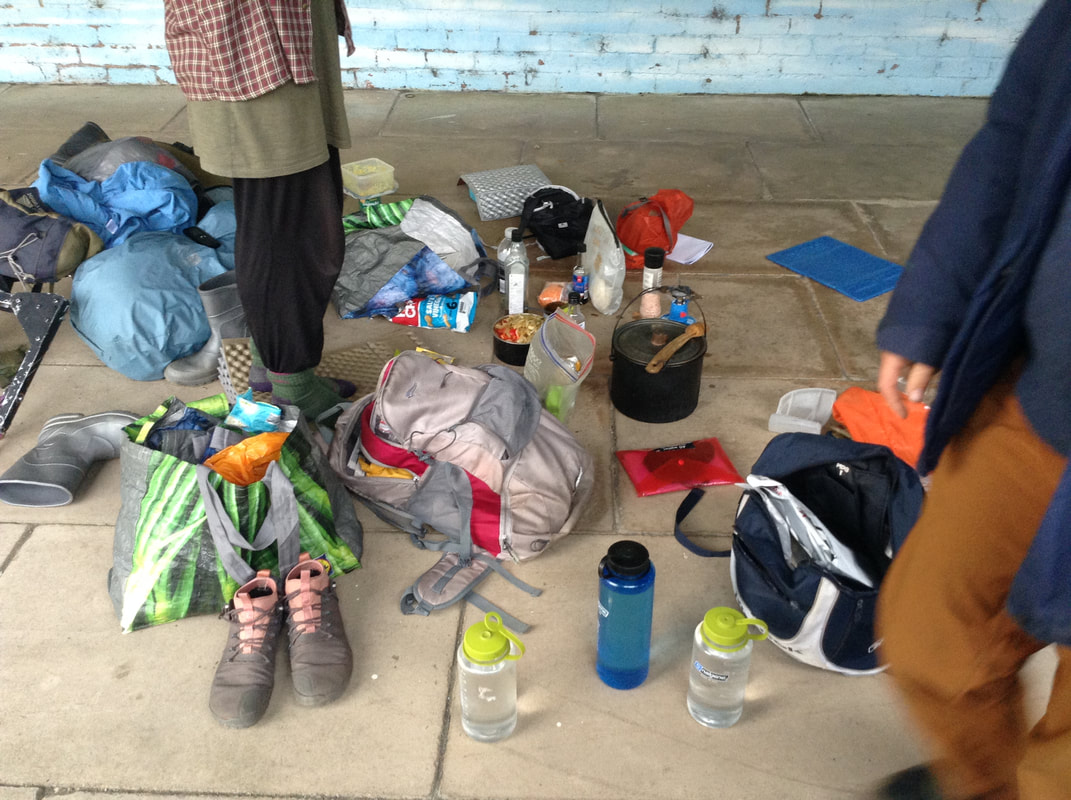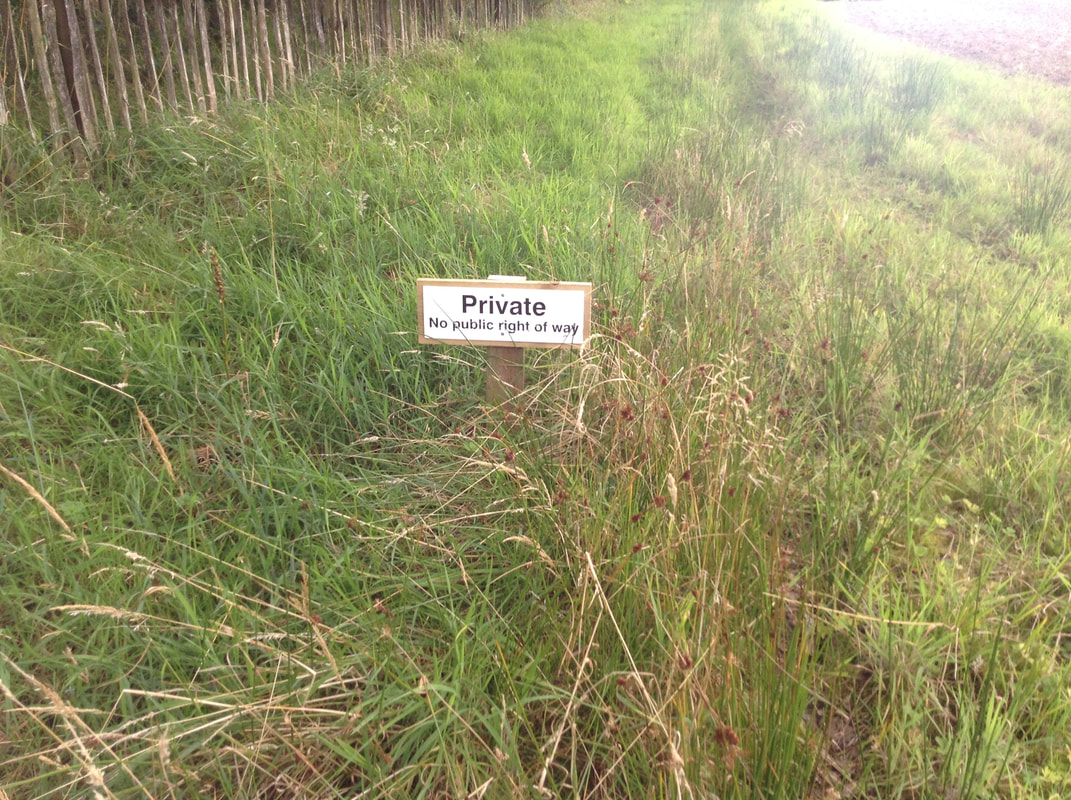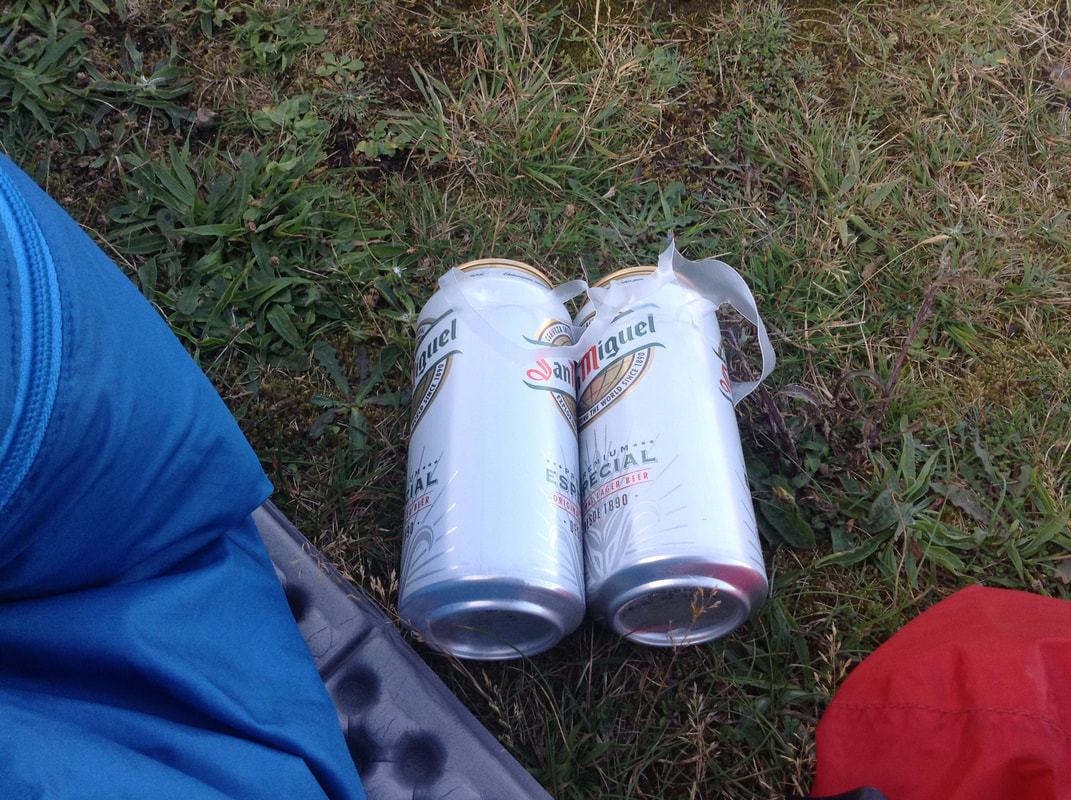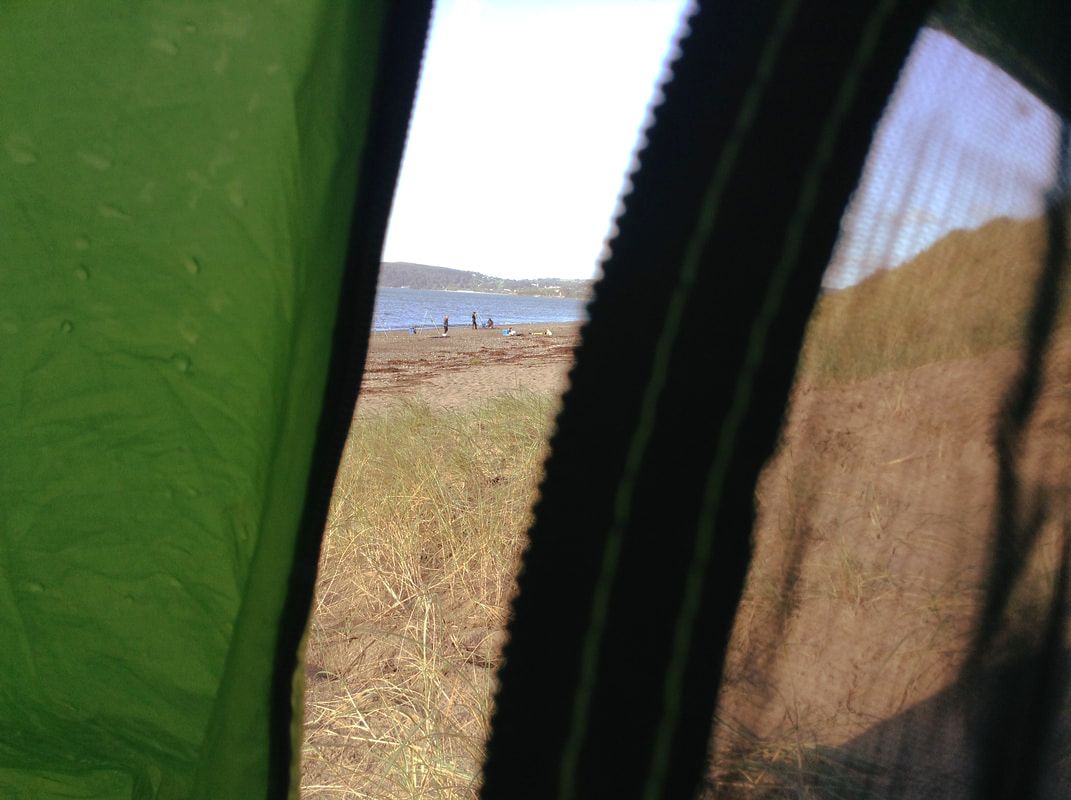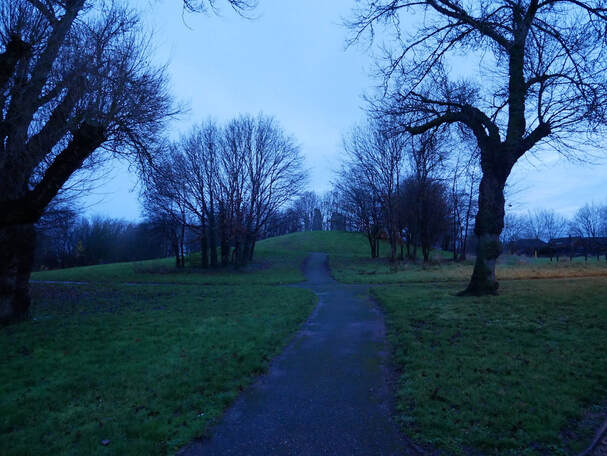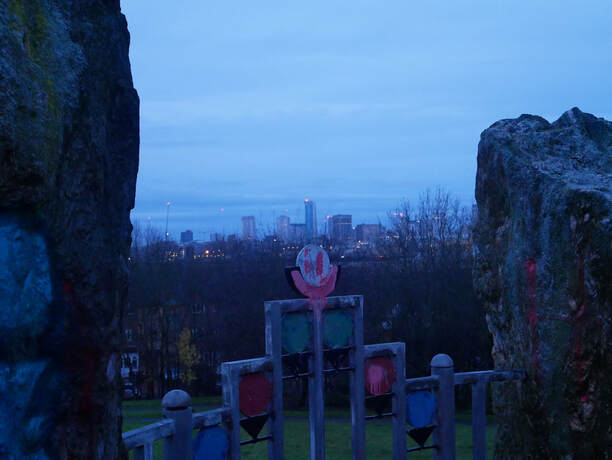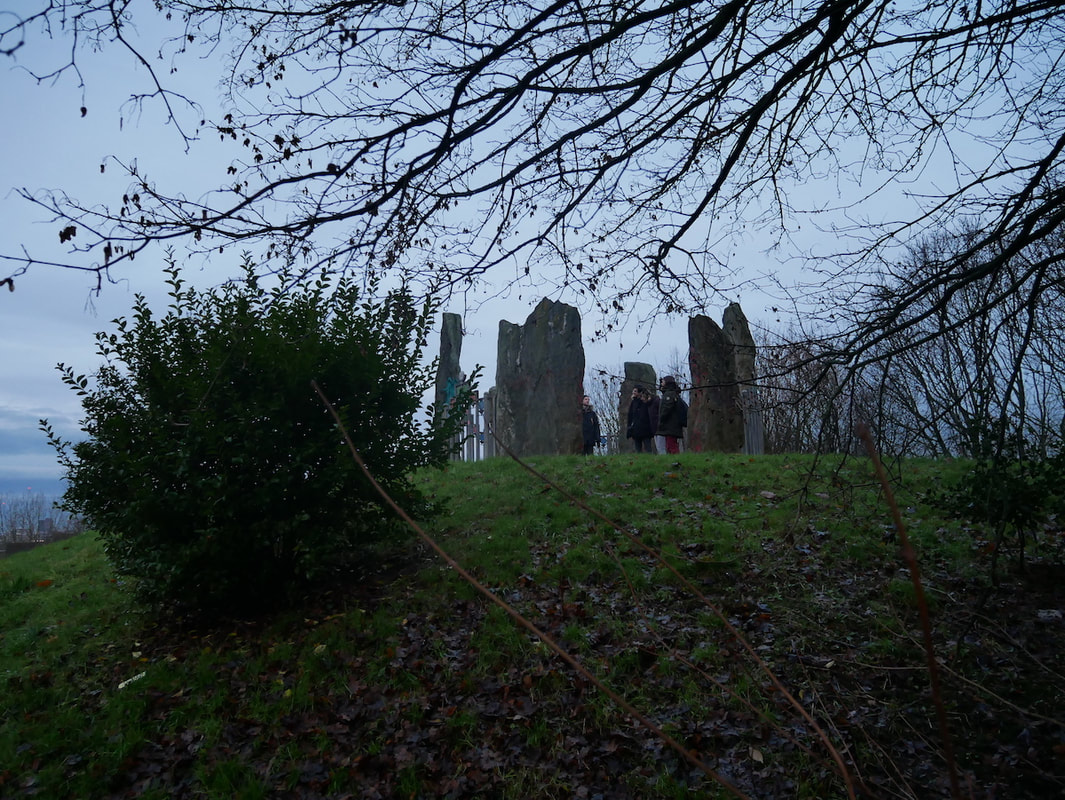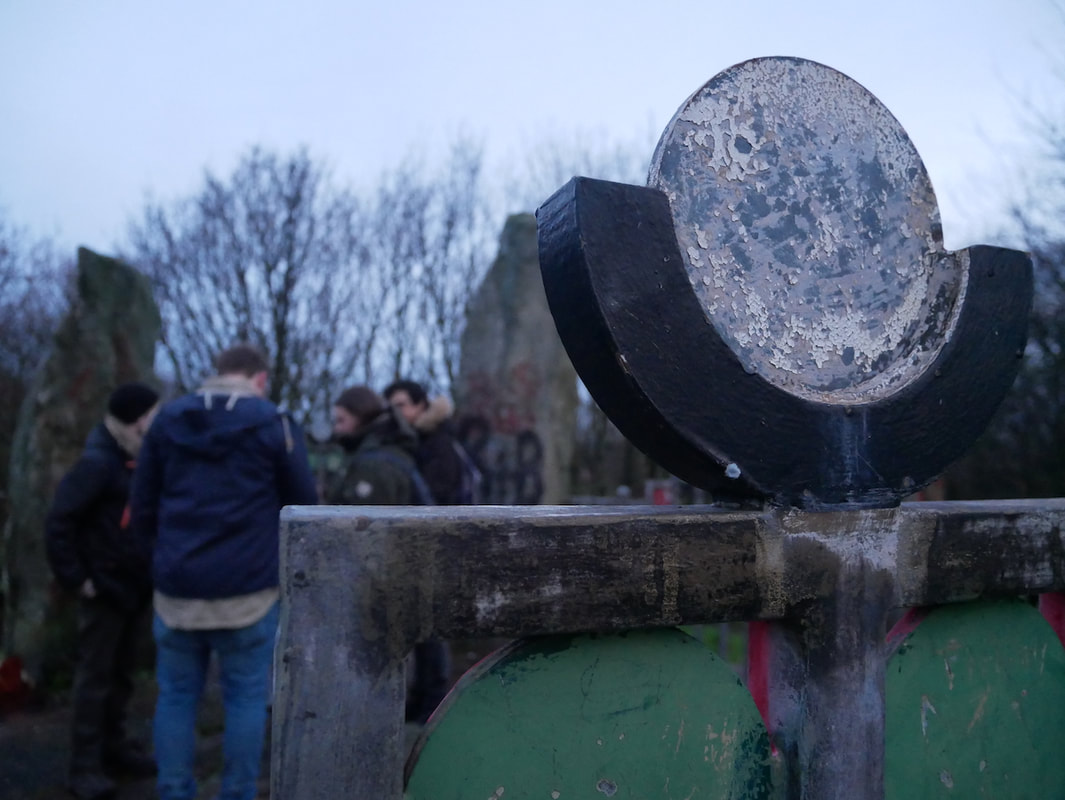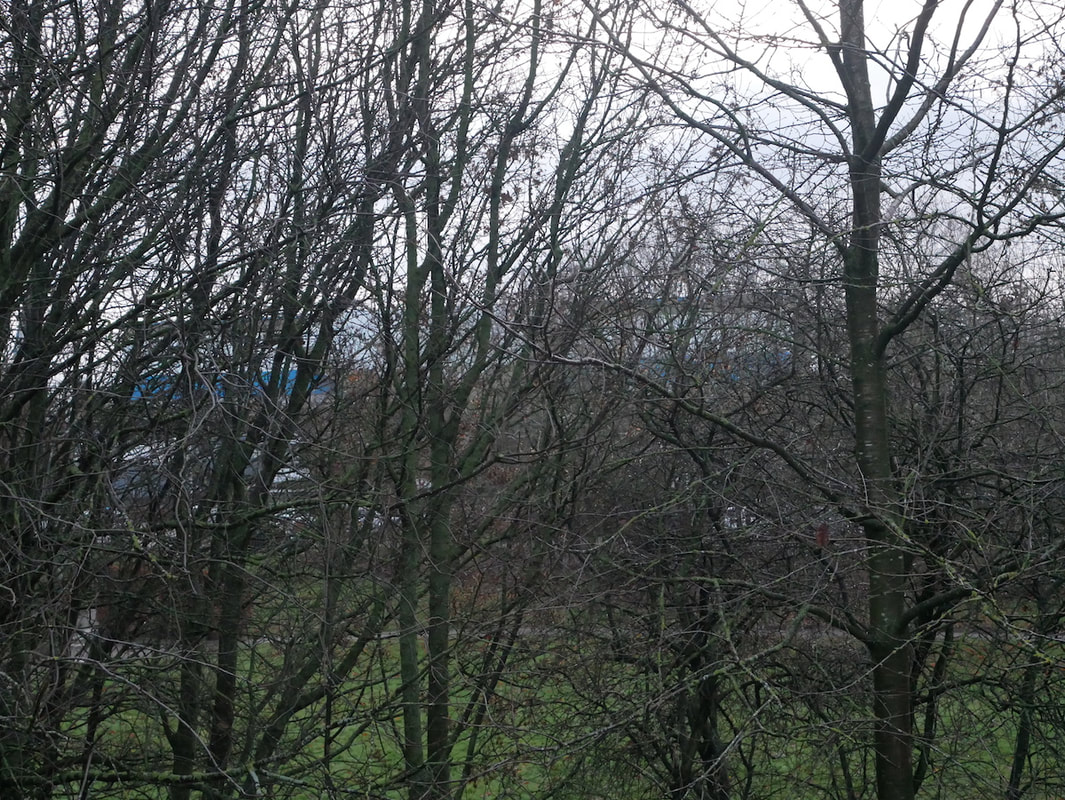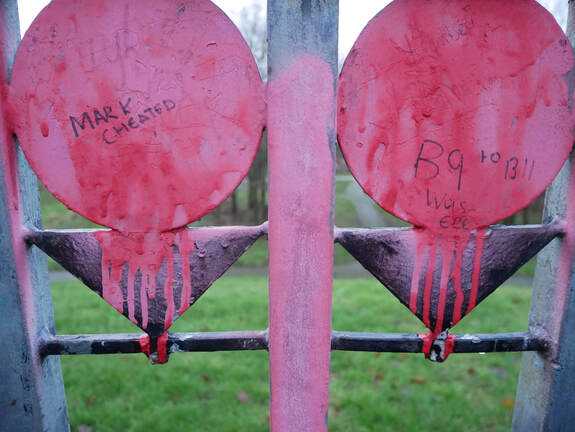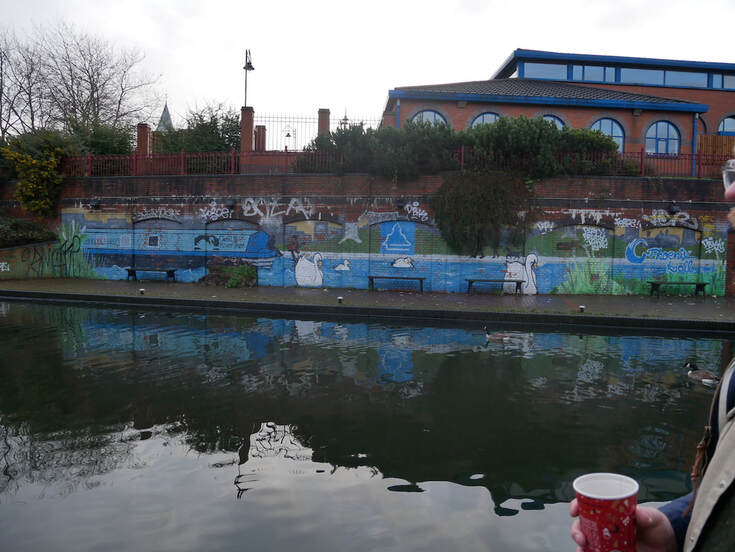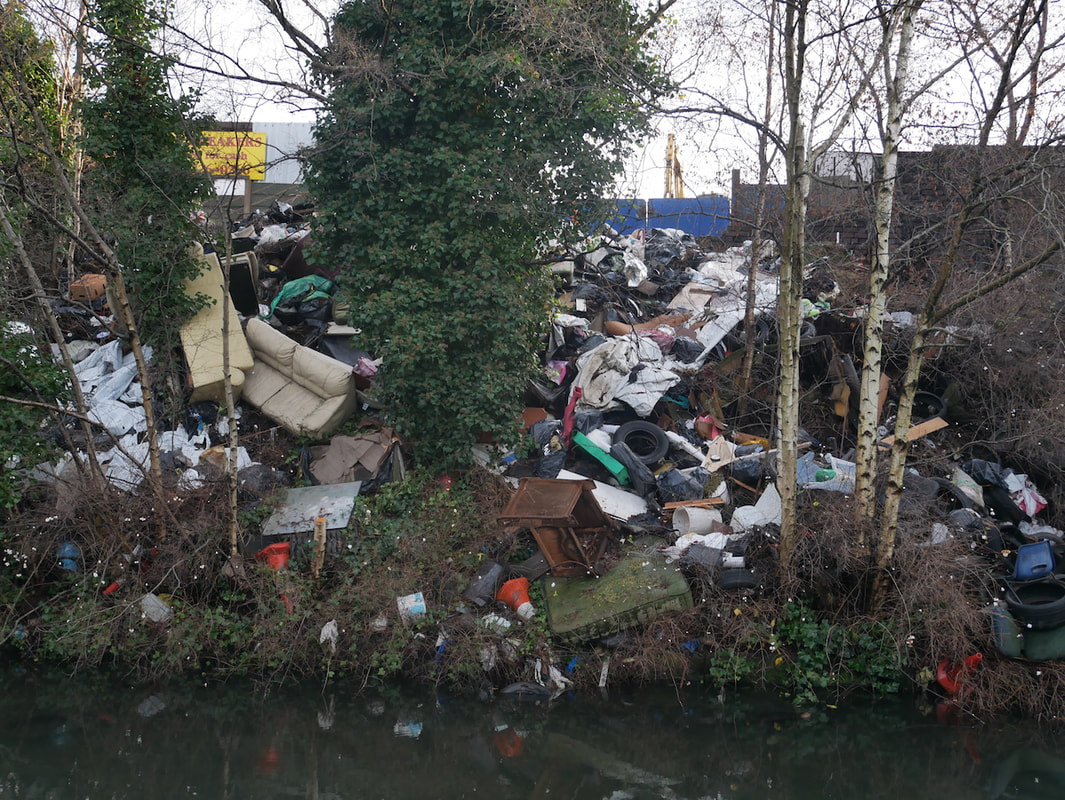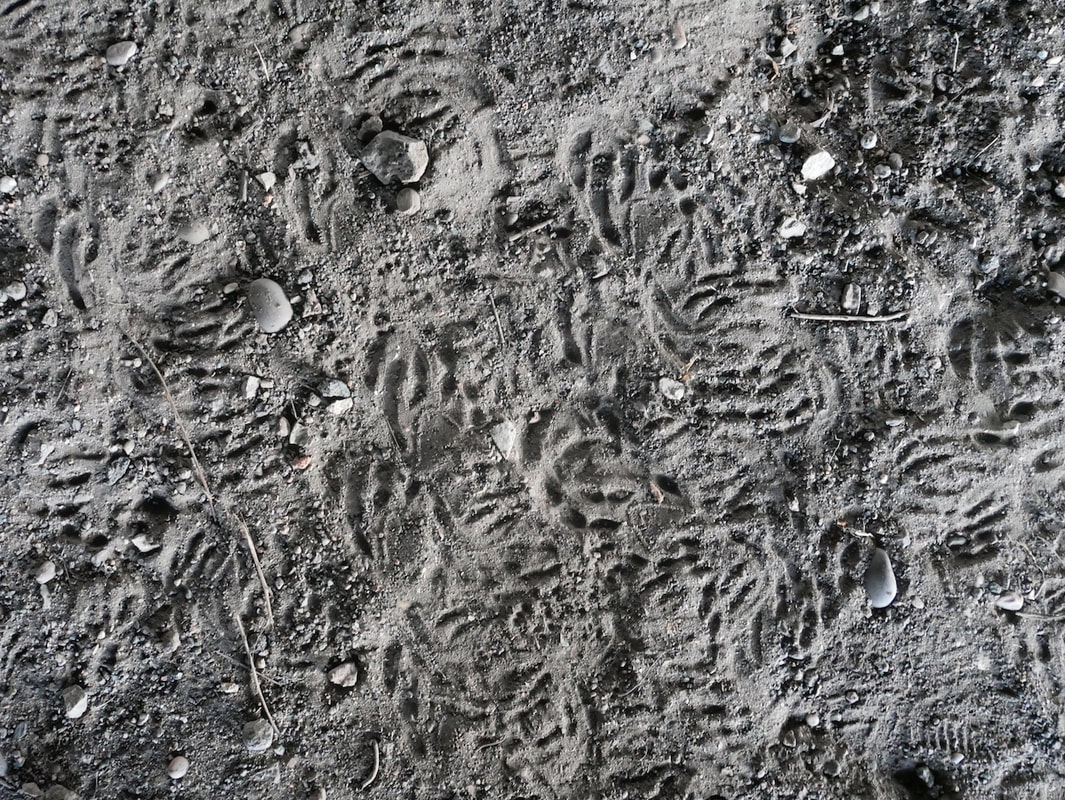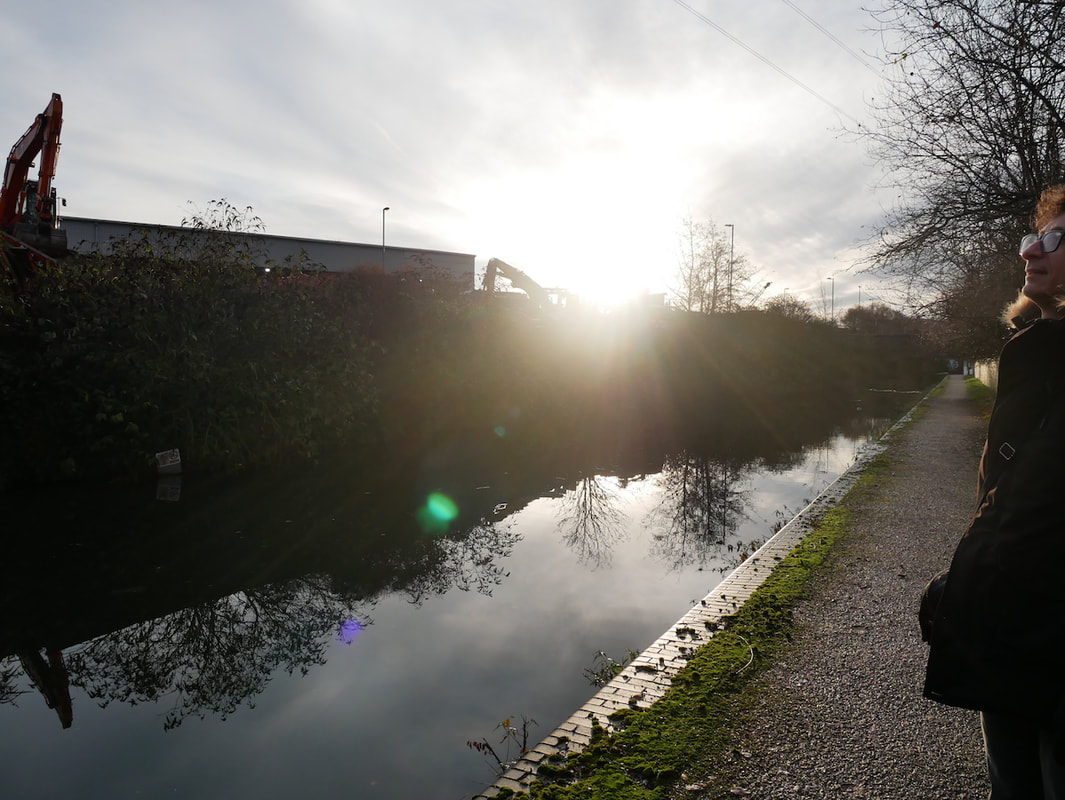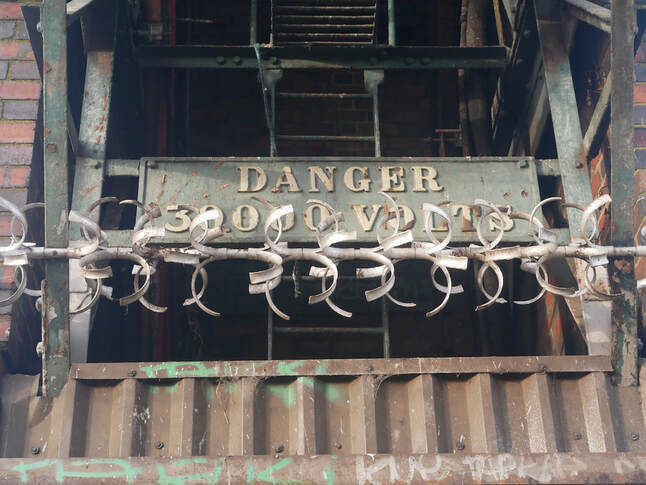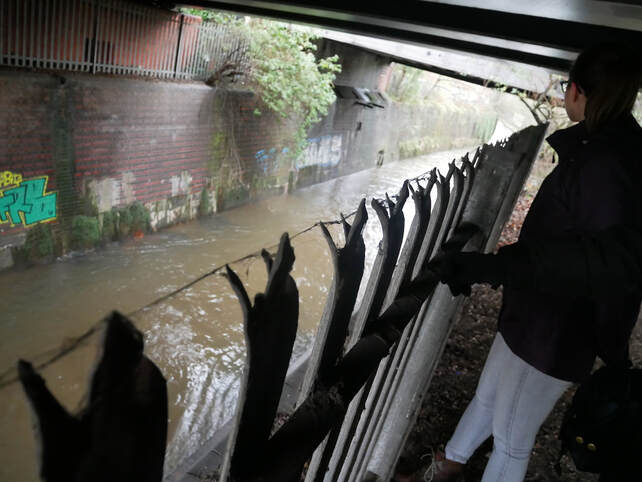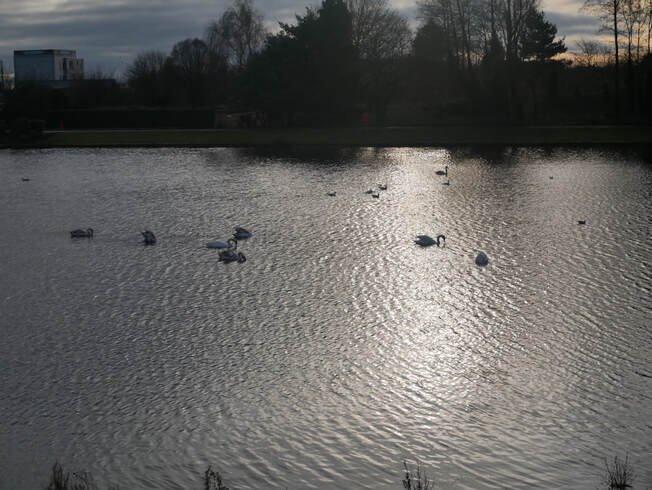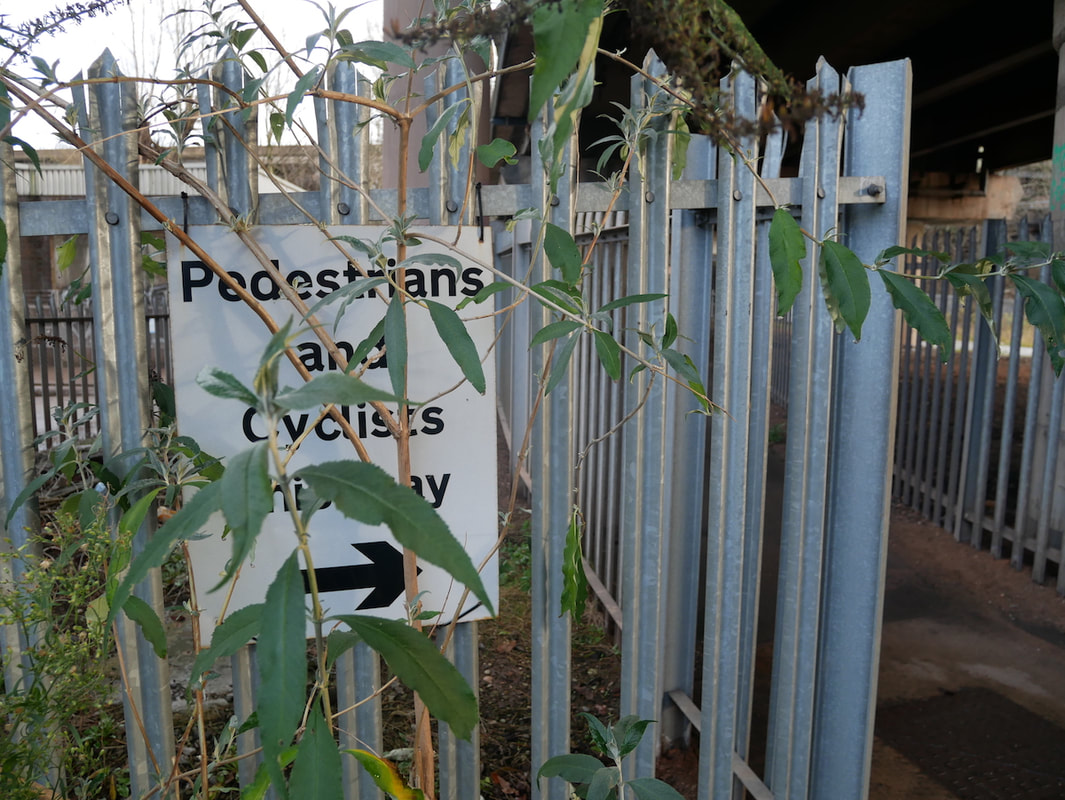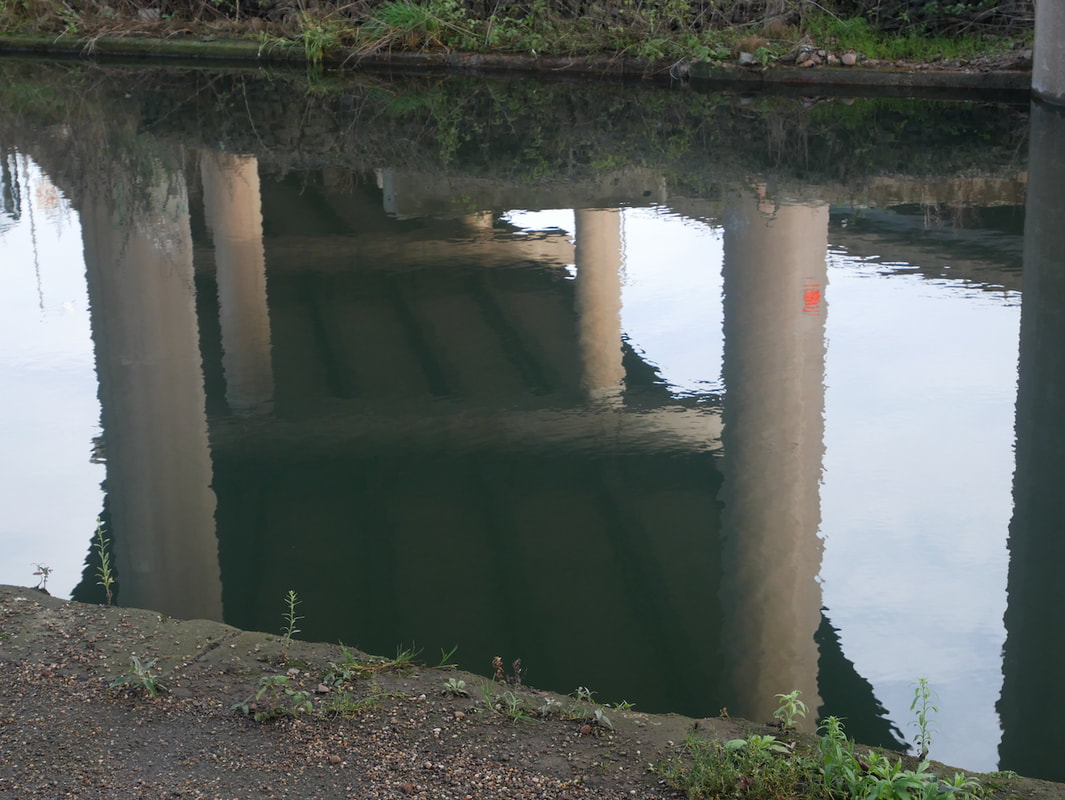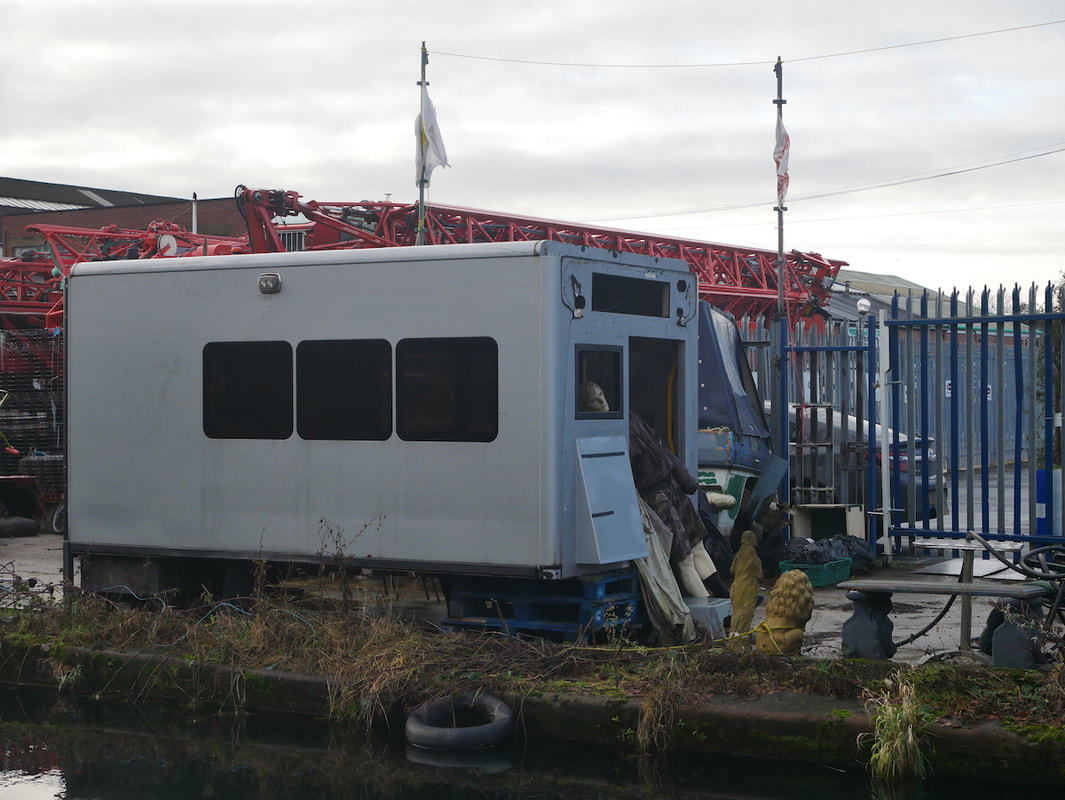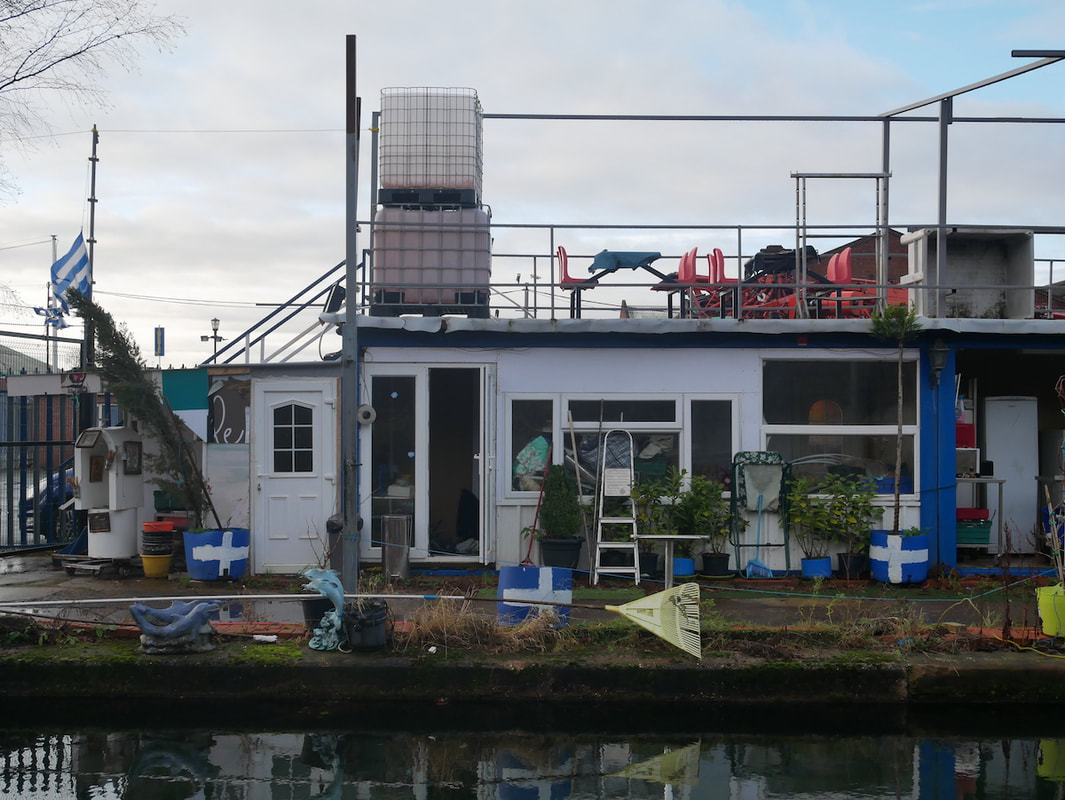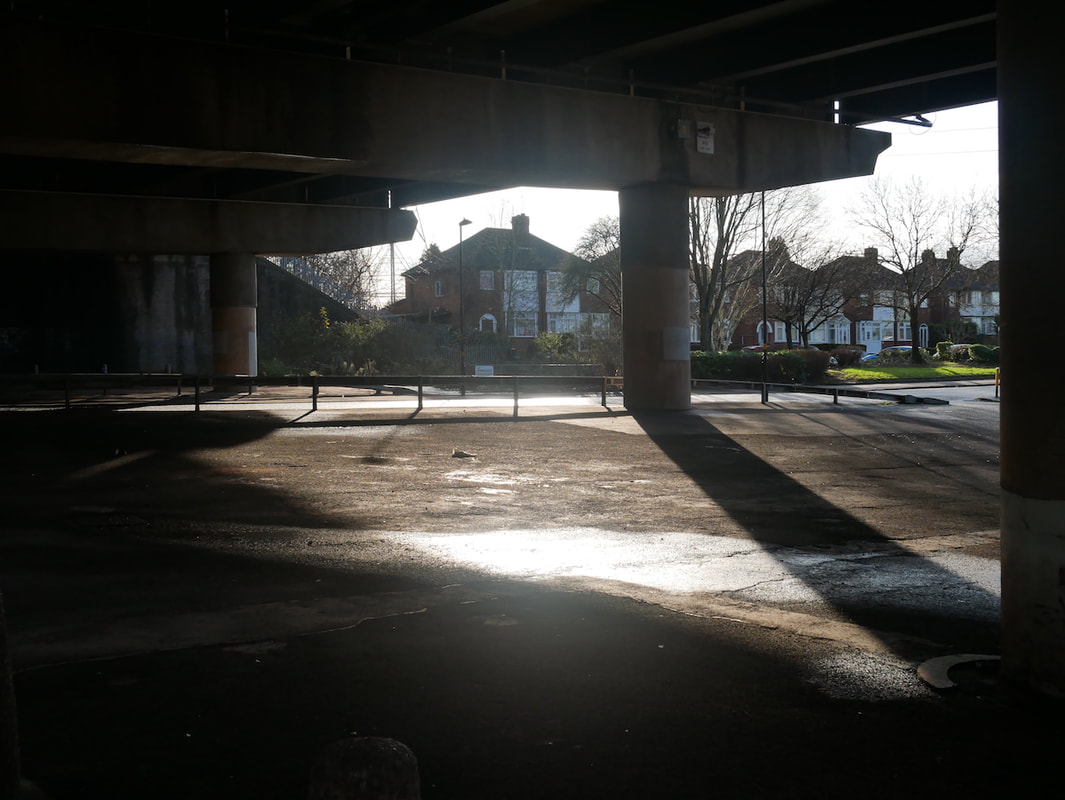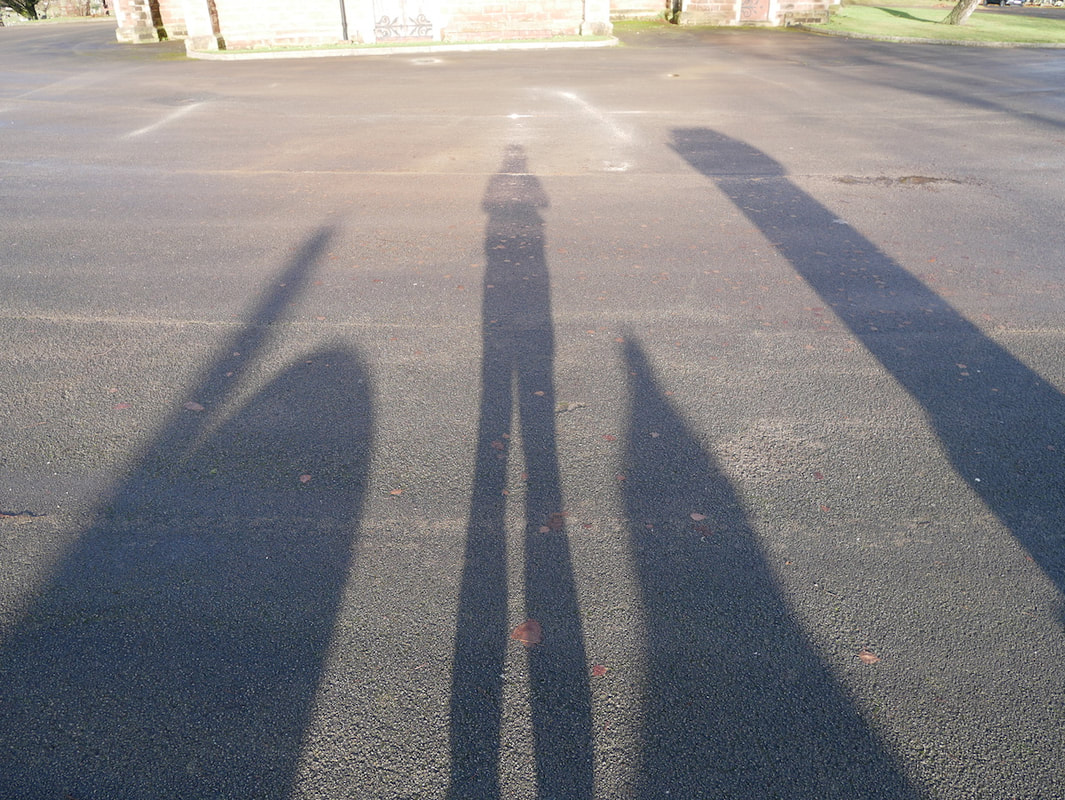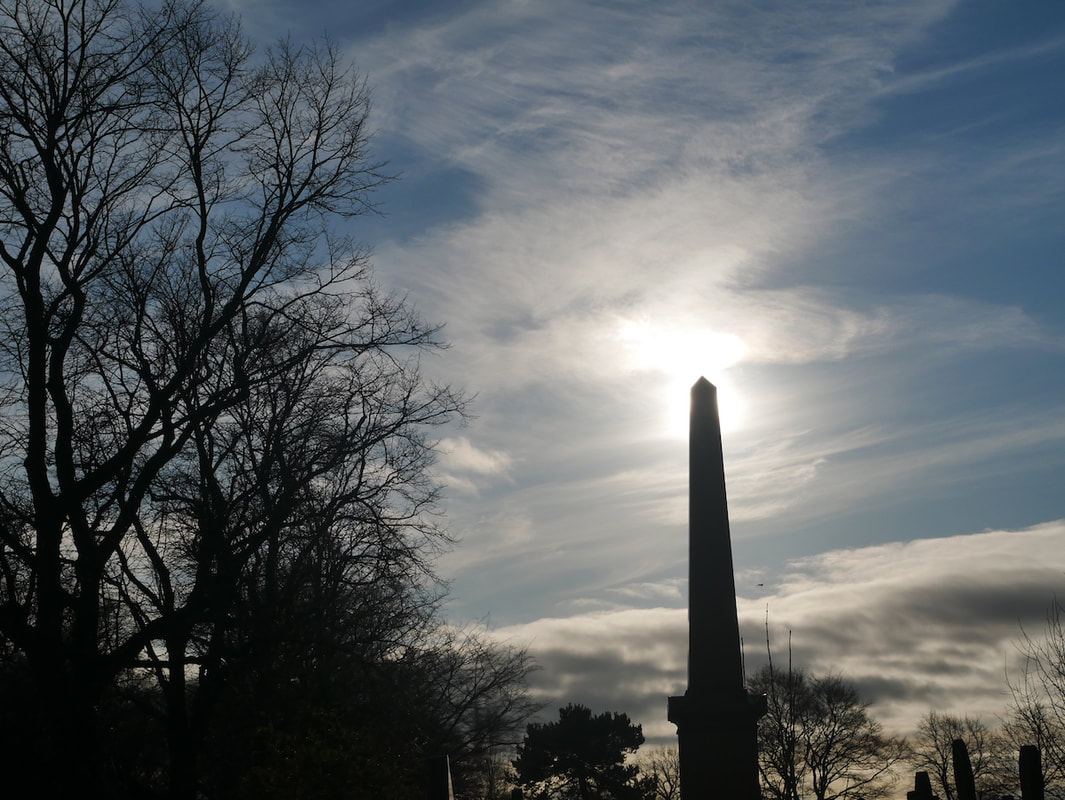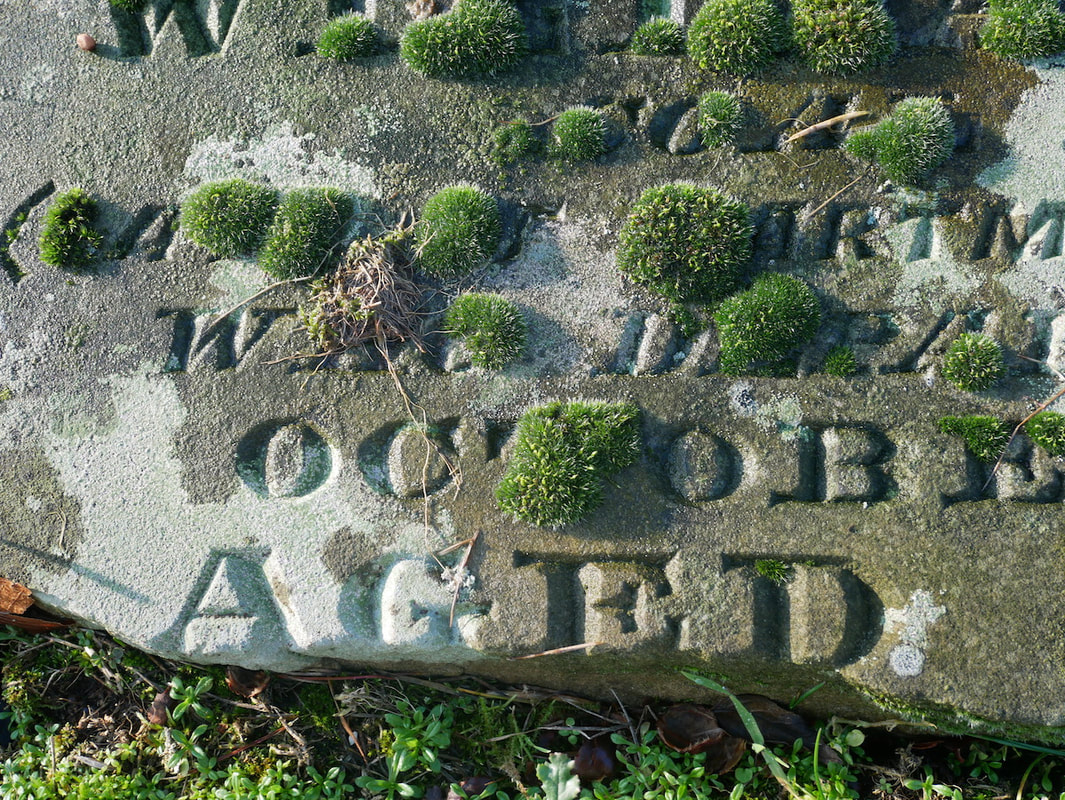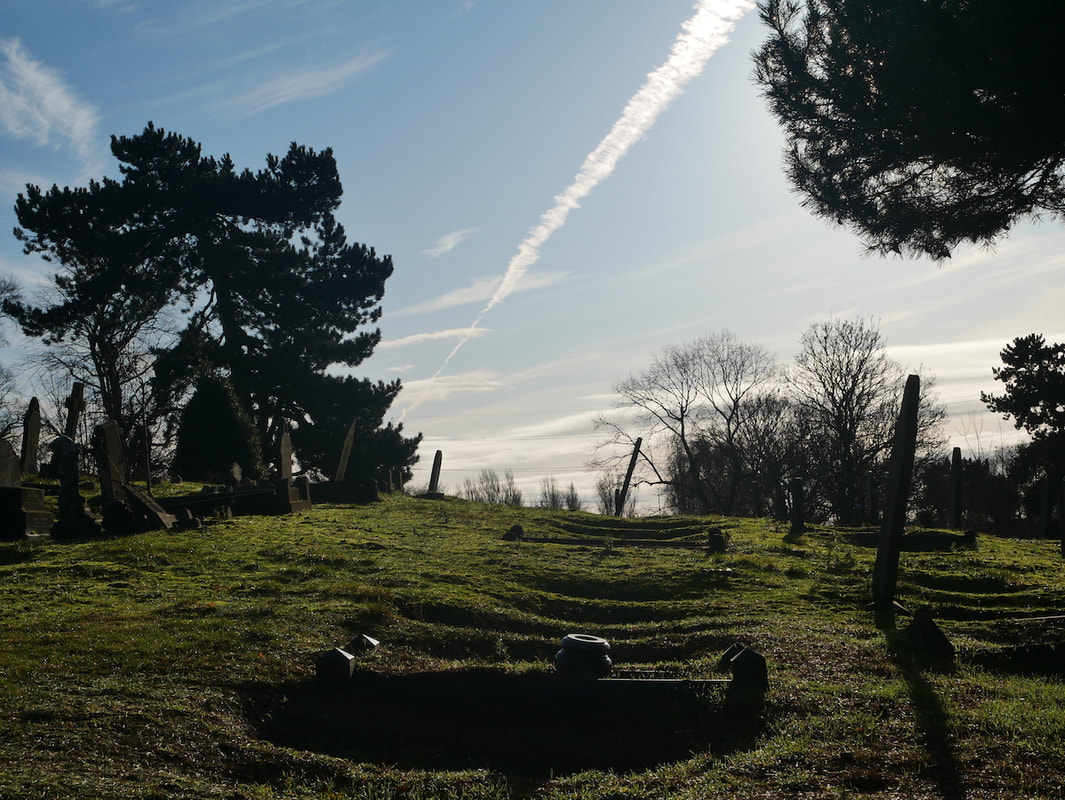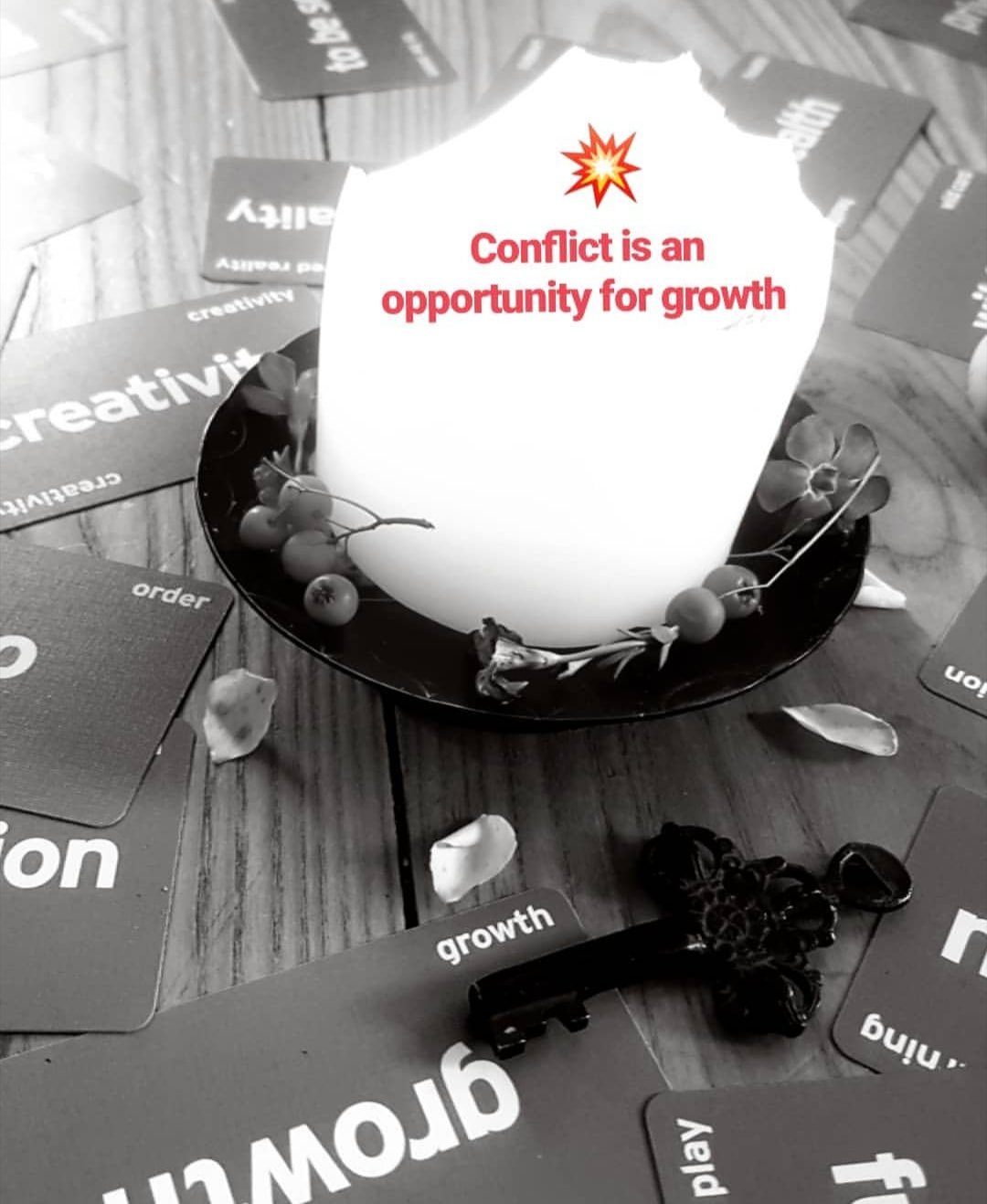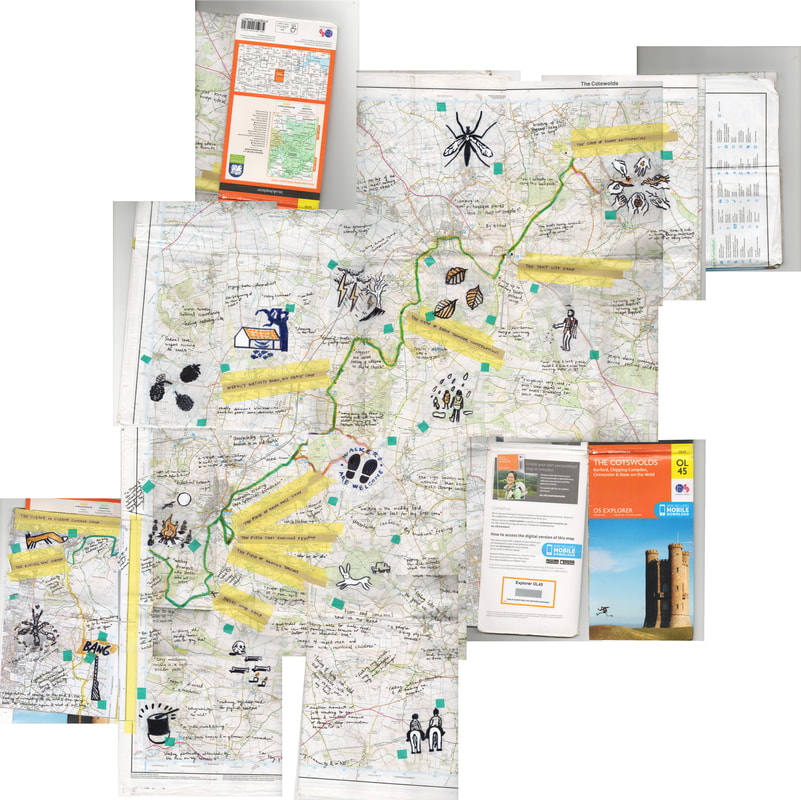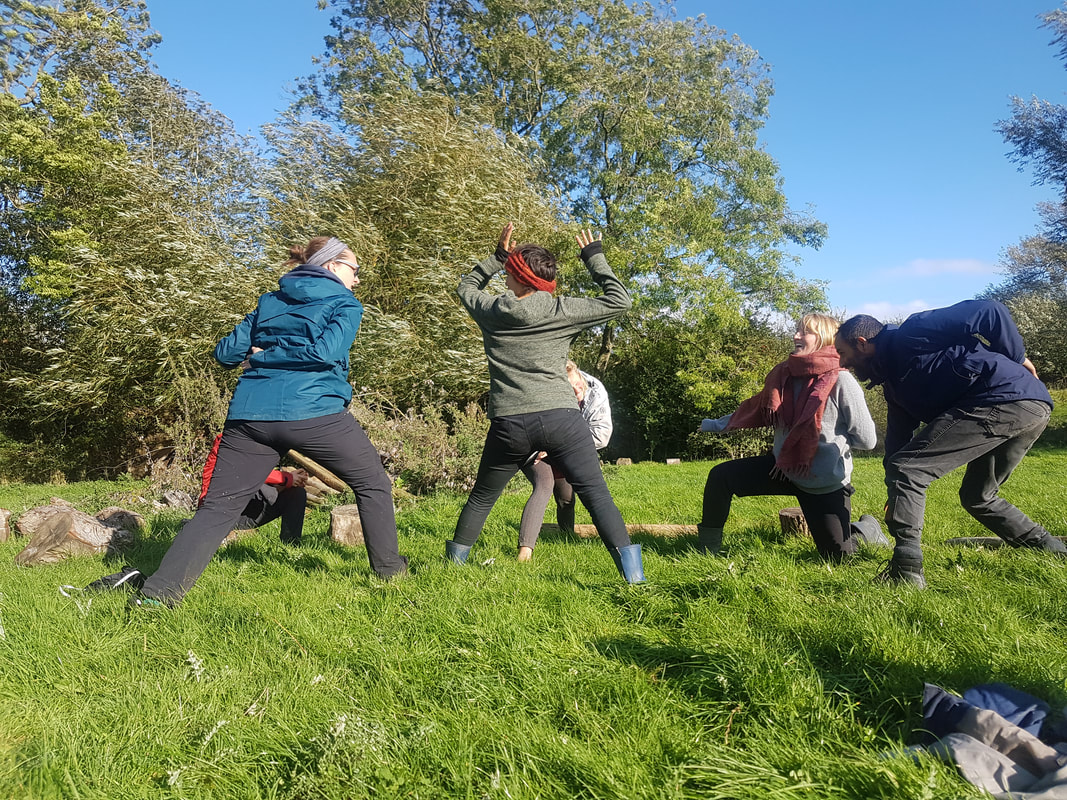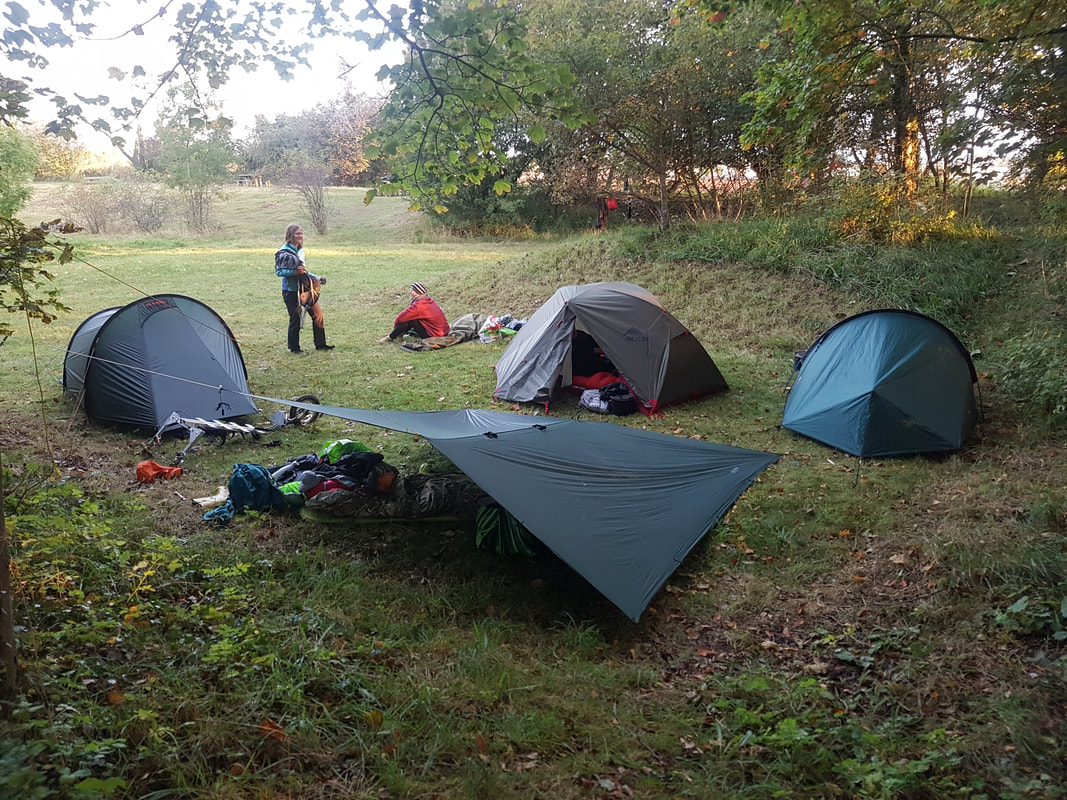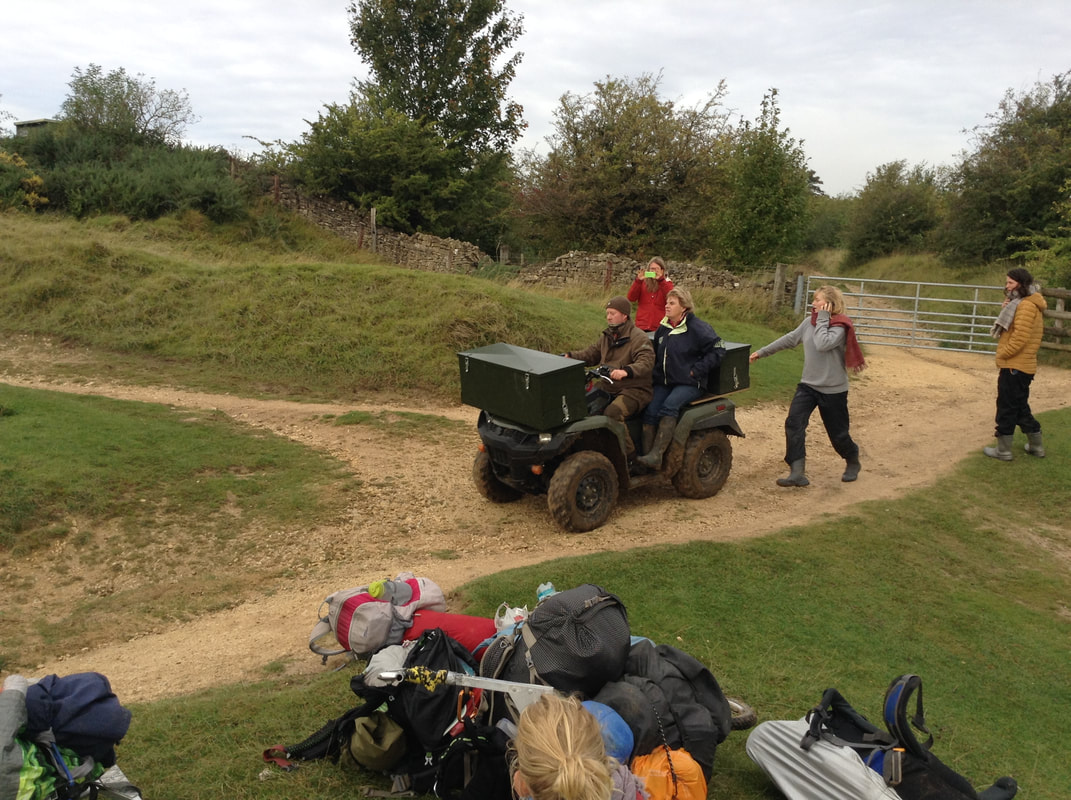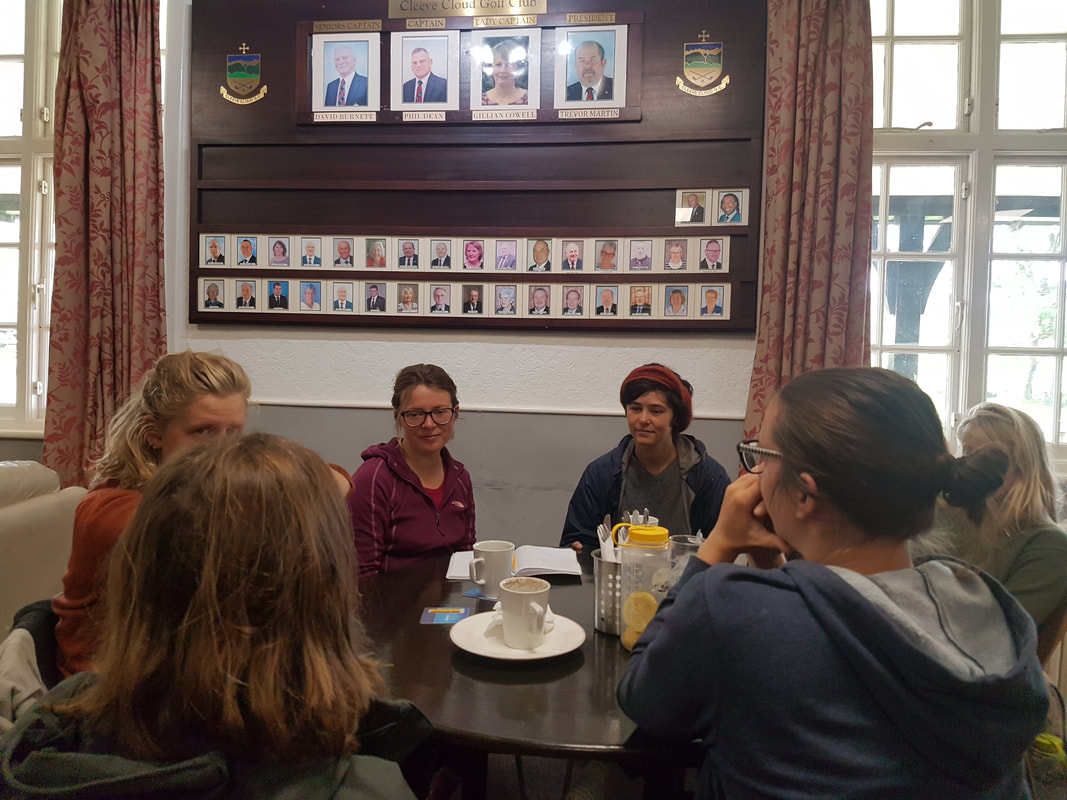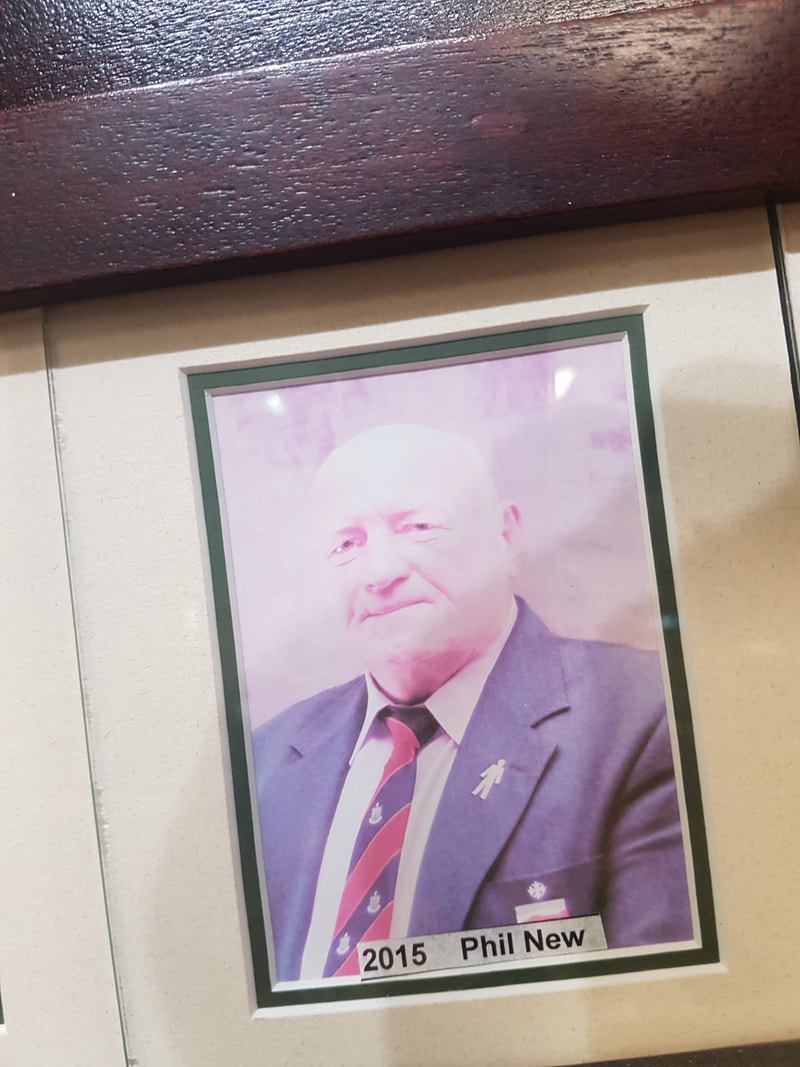Cricieth
Memories
Cricieth: the Children's garden where we stayed, and Y Nyth (The Nest), who hosted this creative residency. In the MEMORIES video we discuss: Foraging for self heal, keeping in touch with people, sleeping bag cleanliness, wanting to different things and practicing convergent decision making, and finding The Nest.
MEMORIES: Criccieth from Land in Curiosity on Vimeo. Memories & NowThe Inbetween
This recording captures some of the times we had INBETWEEN the walk and now: Community vs autonomy, existential depression, the usefulness of convergent decision making and non-violent communication (NVC), Hana’s bamboo cutlery set.
******************
|
|
Art residency @ Y Nyth (The Nest) 20-25 Feb 2020
|
Images, drawings, and text by:
Lauren Goodey & Chloë Lund |
Penychain & Aberech Sands
Memories
Penychain train station and Aberech Sands: where we slept at the train station, met some special people and had hot showers.
In the MEMORIES video we discuss: Sleeping in the train station, meeting Melissa, Haydn and Emily, abundance & confidence, taking what you need (and more!), shelter, freedom and generosity, the friendly train conductor, and the question 'who’s land is this?'
In the MEMORIES video we discuss: Sleeping in the train station, meeting Melissa, Haydn and Emily, abundance & confidence, taking what you need (and more!), shelter, freedom and generosity, the friendly train conductor, and the question 'who’s land is this?'
Memories & Now
The Inbetween
In the INBETWEEN recording we talk about: being in scarcity mindset; (who are those big birds??); class and access to money, receiving and contributing; (they are seagulls!!); low energy, how the inner critic links to having enough; asking for what you want, choosing ease, saying yes, privilege and taking more than we need.
Next: Part 4 - Cricieth
|
Art residency @ Y Nyth (The Nest) 20-25 Feb 2020
|
Images, drawings, and text by:
Lauren Goodey & Chloë Lund |
Borth-Y-Gest
Memories
Borth-Y-Gest: where we spent around 10 days wild camping next to the beach.
In the MEMORIES video we discuss: the first signs of autumn, finding this amazing camp, sadness and mourning for places we stayed, the pier, Chloë's baptism, finding jellies.
In the MEMORIES video we discuss: the first signs of autumn, finding this amazing camp, sadness and mourning for places we stayed, the pier, Chloë's baptism, finding jellies.
MEMORIES: Borth-y-gest from Land in Curiosity on Vimeo.
Memories & Now
The Inbetween
In the INBETWEEN recording we talk about: mental health, coming back to the walk after the festival, trusting in God, flowing through the elements of water and earth, where water was present in our lives over winter.
Next: Part 3 - Penychain & Aberech Sands
Art residency @ Y Nyth (The Nest) 20-25 Feb 2020 | Images, drawings, and text by: Lauren Goodey & Chloë Lund |
|
|
*Y Nyth (The Nest) is a 'shop' on Cricieth high street that doesn't sell anything. Instead, it is an open community space for anyone to use, whether escaping from the wild coastal wind and rain or hanging out with friends after school. The space is owned and offered by Gemma, Mark and their family. They are both deeply committed Christians, practicing great generosity. We are very grateful to them for providing this space and for hosting us during this residency.
Art residency: The Process
| We wanted this residency to be an opportunity to reflect and experiment with our creativity. Instead of setting strict outcomes for the residency and falling into a production mentality, we decided to prioritise:
| Daily routine
Revisiting the places felt like a exploration across space and time. Standing together in these significant locations, memories came back with a particular vividness, a level of detail which we had previously forgotten. It had been a whole winter since we lived together while walking the Welsh Coast Path, and we also wanted to find out how our winters had been whilst we had been apart; how they might have been informed by the moments we shared along this stretch of the Welsh Coast Path in the summer? And where were we now, at the dawn of a new spring. |
In Part 1,2 & 3 of this blog post, we share some of these reflections.
In the videos: we share our memories from key sites.
In the audio recordings: we extend these discussions to include our winters.
In the collages: we merge our memories of the places from late summer with photographs as they are now.
In the audio recordings: we extend these discussions to include our winters.
In the collages: we merge our memories of the places from late summer with photographs as they are now.
Next: Part 2 - Borth-Y-Gest
It's been 2 months since I got back from LiC wanders around Wales and England. On our adventures, we got to pass through cities like Birmingham, Brighton, and London and were confronted with the rising numbers of homeless people/rough sleepers out on the streets. Living outdoors for the past 2.5 months (combined with 2 months in Sweden back in 2017), I was reminded of the cozy comforts of home that I sometimes easily take for granted. I became more aware of the challenges of living out in the open, especially during the cold and rainy weeks when fall turns into winter. Of course, I chose this adventure myself, had equipment that made the experience a whole lot more comfortable, as well as a community of like-minded individuals with whom I could share the challenges. But still, we had to overcome the following obstacles:
❌ Not having anywhere to dry our gear 💦
(except for the occasional church⛪️ or public library)
❌Not finding a public source of drinking water nearby 🚱
(even in a wealthy place like the Cotswolds )
❌Not being able to wash our underwear👃🙊
(major take-away: being clean is important for one's well-being and you get acutely aware of how bad you smell while sitting on an overheated train )
❌Being woken up at 5am by an angry man 📣🏕
I'm sure the whole experience made me a lot more sensitive to the situation of homeless people in my community. Recently, I went through my stash of unused shampoos, scarves, and socks and made little packages to donate to a local centre that helps women on the streets (apparently, torches and nail clippers are a big hit). I'm also planning to donate my old sleeping bags, that might come in handy during the upcoming winter months.
❌ Not having anywhere to dry our gear 💦
(except for the occasional church⛪️ or public library)
❌Not finding a public source of drinking water nearby 🚱
(even in a wealthy place like the Cotswolds )
❌Not being able to wash our underwear👃🙊
(major take-away: being clean is important for one's well-being and you get acutely aware of how bad you smell while sitting on an overheated train )
❌Being woken up at 5am by an angry man 📣🏕
I'm sure the whole experience made me a lot more sensitive to the situation of homeless people in my community. Recently, I went through my stash of unused shampoos, scarves, and socks and made little packages to donate to a local centre that helps women on the streets (apparently, torches and nail clippers are a big hit). I'm also planning to donate my old sleeping bags, that might come in handy during the upcoming winter months.
Sometimes helping people on the street is as simple as not ignoring them, having a quick chat and asking them what they need .
Check out this recent article by The Guardian on what you can do about the homelessness crisis.
Check out this recent article by The Guardian on what you can do about the homelessness crisis.
We met Andy from Video Strolls at the Walking’s New Movements Conference and got talking about urban walks, experiencing nature in cityscapes, and the way the sun's movement has informed city planning (as explored by Phil Smith in relation to Milton Keynes in The MK Myth). Here, Andy documents a Winter Solstice walk in Birmingham.
Four miles, six participants: Andy, Jonny, Kerry, Kevin, Phil, Shane.
Words and photos by Andy.
7:45 - A civil twilight rendezvous. From Bordesley Station we make our way to Kingston Hill Park to welcome the rising sun.
A path coils its way up the mound to the council-commissioned sacred site. We wait and speculate idly on the origin of the stones. Glacial erratics? (From the Latin errare, “to wander”)
Jonny swears that in the seventies Stone Henge was relocated several hundred metres from its original site to make way for a Little Chef. Citation required.
Jonny swears that in the seventies Stone Henge was relocated several hundred metres from its original site to make way for a Little Chef. Citation required.
Life begins to stir. A gaggle of geese overhead and the day’s first dogwalker below. We are not spotted.
“Siri, which way to the massive stone head with the painted blue nose?”
Calculating.
“Sleeping Giant, Bordesley Green, 1.4 miles.”
Too far. Limited daylight. Maybe next year.
A McDonald’s pick-me-up and toilet break before proceeding to the Grand Union Canal.
“Siri, which way to the massive stone head with the painted blue nose?”
Calculating.
“Sleeping Giant, Bordesley Green, 1.4 miles.”
Too far. Limited daylight. Maybe next year.
A McDonald’s pick-me-up and toilet break before proceeding to the Grand Union Canal.
Echoes of Venice.
Recounting Alys Fowler’s aquatic exploits in her book Hidden Nature.
Exploring Birmingham’s canal network in a bright red inflatable kayak.
Accessing the inaccessible. Micro-ecologies, industrial ruins, eulogies to buddleia.
Be an adventurer in your own city.
Exploring Birmingham’s canal network in a bright red inflatable kayak.
Accessing the inaccessible. Micro-ecologies, industrial ruins, eulogies to buddleia.
Be an adventurer in your own city.
10:37 - Our first sighting of the sun.
Pause.
Pause.
“How many bricks carry the River Rea underneath Birmingham?”
Phil never did get an answer.
A detour at Spaghetti Junction to take in the lake.
And then there were three.
Crossing the Tame.
Echoes of Roy Fisher.
“Where’s Birmingham’s river?”
The Tame gets marched out of town in the policed calm that hangs under the long legs of the M6.
Echoes of Roy Fisher.
“Where’s Birmingham’s river?”
The Tame gets marched out of town in the policed calm that hangs under the long legs of the M6.
Tame Valley Canal. New territory.
Exit at Brookvale Road for Witton Cemetery, our final destination.
Pass beneath the M6 once more, threshold to the undiscovered country.
Pass beneath the M6 once more, threshold to the undiscovered country.
OK the sun can take it from here.
Adapted from the provocation given as part of the Walking's New Movements conference at Plymouth University.
Written and read by Chloë Lund. Read a plain text version of the talk here.
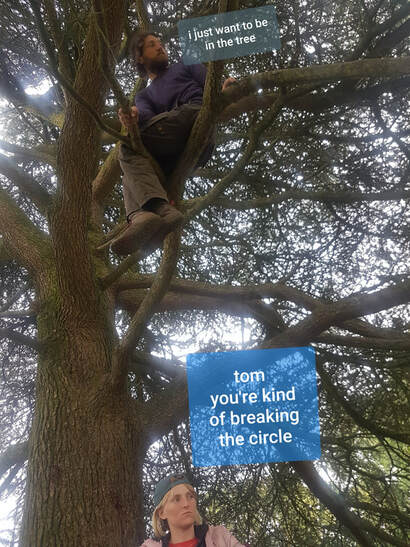
Last week, we had a mediation process around a conflict within our core team.
Conflict is inevitable in relationship and community, it can be a healthy part of the cycle of change, destruction and recreation. It signals that something isn’t working, increases awareness of difficult dynamics, and can create space for finding solutions.
The process meant speaking honestly about challenges, traumas and the way we impact each other. Something we aren’t always encouraged to do in English society which values politeness, indirectness and a ‘stiff upper list’ above radical honesty. Though the weight of our emotions sometimes made it hard, we said what we needed to say & heard what needed to be heard. Moving away from a culture which is obsessed with rightness, we explored differing realities and shared ones.
It was powerful. It also hurt. Thankfully, we were blessed with a guide, Sophie Docker (Open Edge), who freely shared her time and expertise with us, holding the process gently and compassionately.
LiC is committed to exploring healthy ways to deal with conflict. At the start of this year, we spent a weekend with mediator Paul Kahawatte (Navigate) to develop our conflict resolution systems. You can check out what we came up with here.
Learning to use these systems takes practice, and bravery to step into spaces that feel uncomfortable or scary. But we know that this is important work. We know that valuing conflict encourages an environment where change is seen and welcomed, and in that way, it is an important part of creating strong, resilient communities.
Read more about restorative circles here: www.restorativecircles.org
More on Open Edge: www.openedge.org.uk Navigate : www.navigate.org.uk
Conflict is inevitable in relationship and community, it can be a healthy part of the cycle of change, destruction and recreation. It signals that something isn’t working, increases awareness of difficult dynamics, and can create space for finding solutions.
The process meant speaking honestly about challenges, traumas and the way we impact each other. Something we aren’t always encouraged to do in English society which values politeness, indirectness and a ‘stiff upper list’ above radical honesty. Though the weight of our emotions sometimes made it hard, we said what we needed to say & heard what needed to be heard. Moving away from a culture which is obsessed with rightness, we explored differing realities and shared ones.
It was powerful. It also hurt. Thankfully, we were blessed with a guide, Sophie Docker (Open Edge), who freely shared her time and expertise with us, holding the process gently and compassionately.
LiC is committed to exploring healthy ways to deal with conflict. At the start of this year, we spent a weekend with mediator Paul Kahawatte (Navigate) to develop our conflict resolution systems. You can check out what we came up with here.
Learning to use these systems takes practice, and bravery to step into spaces that feel uncomfortable or scary. But we know that this is important work. We know that valuing conflict encourages an environment where change is seen and welcomed, and in that way, it is an important part of creating strong, resilient communities.
Read more about restorative circles here: www.restorativecircles.org
More on Open Edge: www.openedge.org.uk Navigate : www.navigate.org.uk
A map of our 10 day walk in September 2019
Collective memories from Lauren W, Nic, Amelie, Chloe and Hana. Documented by Hana and Chloe. (Use the interactive viewer below to zoom in and get a closer look at the map)
Day 1 THE CAMP OF SUNNY ANTICIPATION. 'Sharing intentions.' We come together in a sunny field beneath Dover's Hill, passing by an incredible view of the Cotswolds. 'I actually can carry this backpack!' 'The only time I had a strong feeling of us all being women.'
Day 2 TENT CITY CAMP 'Camping in non-picturesque places... being by a road.' We camp packed closely together, tucked away in a discreet corner of the Fish Hill park. 'Opening up to accept support from others.' We make our group agreements. 'People doing community-service sewing wildflowers.' 'Our first and last public toilets - and they didn't even have running water!'
Day 3 THE CAMP OF BEECH THUNDER CONSTELLATIONS 'Coming up to Broadway Tower, a postcard image.' 'Everything's very neat, then there's us on our knees scrambling for beech nuts!' We find a beautiful beech forest, with windy roots and bending branches. 'The non-human beings welcoming us in.' We gather to talk about our learning objectives. Our first family constellations workshop. 'The ground was literally shaking beneath us.'
Day 4 WEEVIL'S NATIVITY BARN 'Rain - like being in a rain forest.' 'Anger and feeling unwelcome in the church.' Then sunshine, drying tents, tarps and socks hanging up in trees. 'Dancing in the rain.' 'Warm, homely, sheltered community.' 'Sedna's cove storytime.'
Day 2 TENT CITY CAMP 'Camping in non-picturesque places... being by a road.' We camp packed closely together, tucked away in a discreet corner of the Fish Hill park. 'Opening up to accept support from others.' We make our group agreements. 'People doing community-service sewing wildflowers.' 'Our first and last public toilets - and they didn't even have running water!'
Day 3 THE CAMP OF BEECH THUNDER CONSTELLATIONS 'Coming up to Broadway Tower, a postcard image.' 'Everything's very neat, then there's us on our knees scrambling for beech nuts!' We find a beautiful beech forest, with windy roots and bending branches. 'The non-human beings welcoming us in.' We gather to talk about our learning objectives. Our first family constellations workshop. 'The ground was literally shaking beneath us.'
Day 4 WEEVIL'S NATIVITY BARN 'Rain - like being in a rain forest.' 'Anger and feeling unwelcome in the church.' Then sunshine, drying tents, tarps and socks hanging up in trees. 'Dancing in the rain.' 'Warm, homely, sheltered community.' 'Sedna's cove storytime.'
Zoom, click and drag to explore the map
Day 5 THE FIELD OF MANY OWLS 'Conquering fears by walking past the bull while singing to appease the cows.' Foraged apples, pears and blackberries. 'Energetic scouting then hysterical tiredness.' Joined by new members of the group. 'People being physically unwell.'
Day 6 THE FIELD THAT SWALLOWS PEGS Our first rest day. We disperse, spend days in town, then are pulled back together in the field. 'Watched by the willows.' 'Family constellation magic.' We met a hunter and willed the wild animals to run away. 'Walking bare foot in the mud.'
Day 7 THE FIELD OF WEAVING THREADS Our second rest day. 'Uncertainty, confusion, big emotions' .'Tears and someone's hand on my head.' Group decision making. Chips in the pub. Silent walk home. 'Beautiful evening singing'
Day 8 BELAS KNAP CAMP 'Headless pheasant'. We sleep next to an ancient burial ground. Some take comfort through connection with ancestors, others are terrified by images of sacrificial children and murder. 'Listen to the sounds of civillisation.' 'Gratitude for being able to make fire in the rain.'
Day 9 THE CLEAVE IN CLEEVE COMMON 'It's been this way for hundreds of years!' We are awoken by the sounds of banging pots and cries of 'Get off my land!!' 'The fleeing fox.' 'The vulnerability of the wild.' In the golf club, we look at the notice board replete with notices on 'vermin control' and the 'problem' of mouse poo on the green. 'Tiny mushroom standing in a well trodden path.'
Day 10 THE RISING SUN CAMP 'Gratitude for permission and being welcomed' We stay in a field owned by the Rising Sun pub. Sheltering inside, we dry off and reflect on our time together. 'Trepidation of going back to civilisation after connecting with the wild.' Leaving ceremony. 'The sounds of traffic.'
* * * * * *
Our 10 day walk in the Cotswolds was certainly challenging. We faced rain, darkness, illness and hostility in private land and chocolate-box towns. It was also extremely powerful and moving. These challenges created the perfect context in which to experience the resilience of community. We supported each other to ride the waves of emotion, and together, found solutions from moment to moment.
* * * * *
Written by Chloë Lund
A wild fox, disturbed in her home, flees for her life
On Monday 30 September 2019, 8.30am, myself and a group of 6 other walkers witnessed what we have cause to believe was an illegal hunt on Cleeve Common, Gloucestershire.
We were alerted by the sounds of horns and hunt cries, soon after we saw about 10 people on horses, several wearing the classic red hunting jackets, and around fifty hounds. We saw the hounds scour the land, including private property and the Commons, where the bylaws state that no dogs are allowed to run off lead. We saw a fox running out of the private woodland, and a case of guns attached to the hunt buggy. Observations of the hounds' behaviour suggests that they were not following a scent trail.*
We contacted the ranger. He told us he was unaware of the hunt. This is surprising as we'd seen him drive up through the common minutes before we heard the first calls. Later, he told us that whether any hunt had permission was 'above him'.
We were alerted by the sounds of horns and hunt cries, soon after we saw about 10 people on horses, several wearing the classic red hunting jackets, and around fifty hounds. We saw the hounds scour the land, including private property and the Commons, where the bylaws state that no dogs are allowed to run off lead. We saw a fox running out of the private woodland, and a case of guns attached to the hunt buggy. Observations of the hounds' behaviour suggests that they were not following a scent trail.*
We contacted the ranger. He told us he was unaware of the hunt. This is surprising as we'd seen him drive up through the common minutes before we heard the first calls. Later, he told us that whether any hunt had permission was 'above him'.
We alerted the police who sent two officers down to meet us. They were patient and diplomatic and asked us to email them any video evidence, which we did. They spoke to the ranger, who deflected from the issue by wrongly accusing us of camping on the common. Then, a member of the golf club, Mr New, approached us as we spoke to the police. He said 'You haven't got a problem with my hounds have you?' He then asked us to mind our bags on the green, remarking 'I love my golf almost as much as I love my hunting.'
Over the following weeks I repeatedly contacted the police, quoting our crime number, and was told the rural and environmental crime officer would return my call. He never did. I eventually got through to him via his extension number. He passed me back over to the police who said that no action had been taken, citing the fact that they apparently hadn't received the video footage from us as the reason for this.
The Commons’ authorities also denied having granted permission for the hunt to take place that morning. Initially, they replied to my enquiries with the ominous statement: “We have no knowledge of hunting activity on the Common.” They later backtracked, saying that as Cleeve Common - a designated SSSI – is in fact privately owned, the owners were at liberty to decide what activities could take place there. However, hunting wild foxes with a pack of dogs is illegal, regardless of permission a landowner. Cleeve Common Trust refused to disclose the names or contact details of its owners.
The North Cotswold Hunt denied any association with this hunt party. The Cotswold Hunt refused to comment.
_______
* Firstly, that the dogs spent so much time in the private woodland where the owners had not given permission for the hunt (or scent) to pass through. Secondly, we saw the hounds circling and disappearing for over 10 minutes in a small copse on an adjacent farm. When we called the owner of this farm, they had no knowledge of a trail being laid, or indeed any hunt on their land. Input from people with direct expertise on /experience of trails hunt welcome.
* Firstly, that the dogs spent so much time in the private woodland where the owners had not given permission for the hunt (or scent) to pass through. Secondly, we saw the hounds circling and disappearing for over 10 minutes in a small copse on an adjacent farm. When we called the owner of this farm, they had no knowledge of a trail being laid, or indeed any hunt on their land. Input from people with direct expertise on /experience of trails hunt welcome.
I am not an advocate for the philosophy behind private land, so it felt strange to be getting all up on who has permission to be where. But I do believe in accountability. And I’ve seen crimes with much less frivolous and cruel motives, crimes with less blood spilt, that have been chased and followed up and pursued and prosecuted by the police.
It's hard not to see the resonance with the wider issues of accountability and inequality we have in our society. Where in general, the more comfortable you are, the more you are permitted to mistreat others and break the law.
The hunt was quite a remarkable thing to see. It called to mind history of king's men on horses, of battles, of our long history of hunting. It also brought up fear of people who want to hold onto a history of glorified violence and oppression, and who use the way things have been as a justification for the way things should be now. I personally look forward to the day when we look back on our exploitation of non-human creatures as barbaric. ("Run little fox!")
The Cotswolds is painted as this quaint picture book place. Well I’ve never seen so many guns in all my life as I did there. Just sayin!
It's hard not to see the resonance with the wider issues of accountability and inequality we have in our society. Where in general, the more comfortable you are, the more you are permitted to mistreat others and break the law.
The hunt was quite a remarkable thing to see. It called to mind history of king's men on horses, of battles, of our long history of hunting. It also brought up fear of people who want to hold onto a history of glorified violence and oppression, and who use the way things have been as a justification for the way things should be now. I personally look forward to the day when we look back on our exploitation of non-human creatures as barbaric. ("Run little fox!")
The Cotswolds is painted as this quaint picture book place. Well I’ve never seen so many guns in all my life as I did there. Just sayin!

